Agriculture & Environment
FoodLAND Project Team Holds Dissemination Meeting for Stakeholders in Wakiso District
Published
10 months agoon
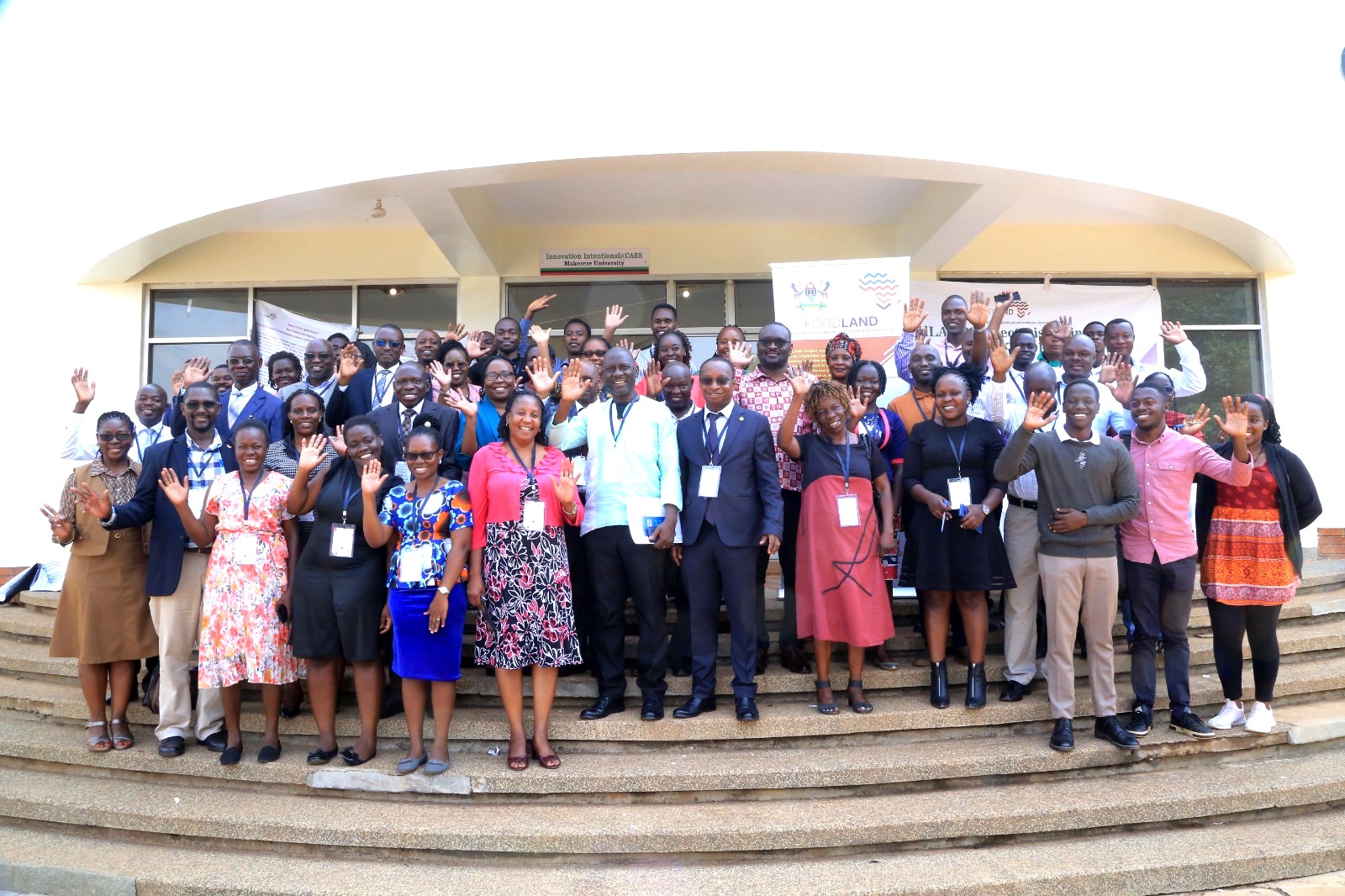
******Funded by the European Commission within the Horizon 2020 programme, the main aim of the project was to develop, implement and validate innovative, scalable, and sustainable technologies to support the nutrition performance of local food systems in Africa. Held at Makerere University, the meeting served as a platform to sensitize stakeholders on the different products developed by the project, including smart farming technologies, nutrient-rich foods, and the nutritional recommendations for adults and the elderly. The meeting featured clinical screening, and the launch of a 30-day healthy diet challenge.
Overview
Africa’s food system is dominated by a number of challenges ranging from primary and seasonal production to poor quality produce, and limited access to markets. In Africa, the use of outdated farming practices and the low adoption rate of improved agricultural technologies have contributed to low productivity. Issues such as monoculture, lack of crop rotation, and poor soil management are still prevalent across the Continent. Poor infrastructure in terms of roads, storage, and processing facilities limits access to markets and increases post-harvest losses. Moreover, many African farmers and other food systems-related businesses lack access to finance and credit facilities that would enable them to invest in improved agricultural technologies and inputs. (John Ulimwengu, FARMINGFIRST 2023).
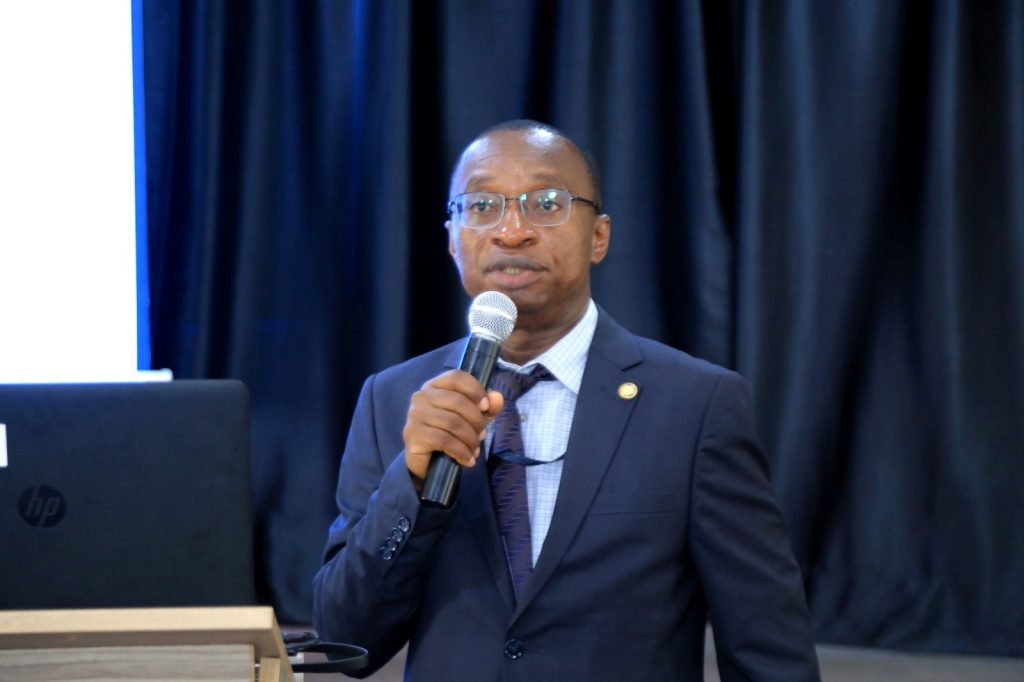
In his presentation delivered at the AU Summit in Addis Ababa in 2023, FAO Director General, Dr. QU Dongyu highlighted the need for collective effort to support vulnerable communities with multiple and innovative solutions to build their resilience and transform agri-food systems to deliver better nutrition. Dr QU Dongyu warned that 1 billion people in Africa could not afford a healthy diet in 2020, and the impacts of the climate crisis, conflicts, the pandemic, and the war in Ukraine were raising levels of malnutrition and hunger. According to a joint report on the State of Food Security and Nutrition in the World, led by FAO, 281 million people in Africa are undernourished, nearly 60 million African children under 5 suffer from stunting, and 14 million suffer from wasting.
Solutions to Challenges facing Africa’s food system
Launched in 2020 with the aim of developing, implementing and validating innovative, scalable, and sustainable technologies to support the nutrition performance of local food systems in Africa, Food and Local, Agricultural, and Nutritional Diversity (FoodLAND) Ugandan project team has come up with a number of initiatives that have tremendously transformed farming in rural communities in the country. Led by Prof. John Muyonga from the School of Food Technology, Nutrition and Bio-engineering at Makerere University, the team has developed technologies for precision irrigation and fertigation, smart storage, rodent control, and value addition. Additionally, the team has established infrastructure at Makerere University Agricultural Research Institute Kabanyolo (MUARIK) for research and training, and has trained over 100 farmers in the different technologies developed, supported the application of ecological principles to ensure sustainable agricultural production, developed nutrient enhanced food products such as noodles containing orange fleshed sweet potatoes and biofortified beans; instant flours containing orange fleshed sweet potatoes, biofortified beans and grain amaranth; and dry eggplant. The team has also developed nutritional guidelines for adults and the elderly. Uganda’s project team: Prof. John Muyonga and Prof. Johnny Mugisha from the College of Agricultural and Environmental Sciences (CAES), Makerere University; Dr. Cassius Aruho, Dr. Puline Nakyewa, Dr. Margaret Masette, Dr. Getrude Atukunda, and Dr. Justus Rutaisire from NARO; Mr. Henry Nsereko from VEDCO; and Prof. Dorothy Nakimbugwe from Nutreal.
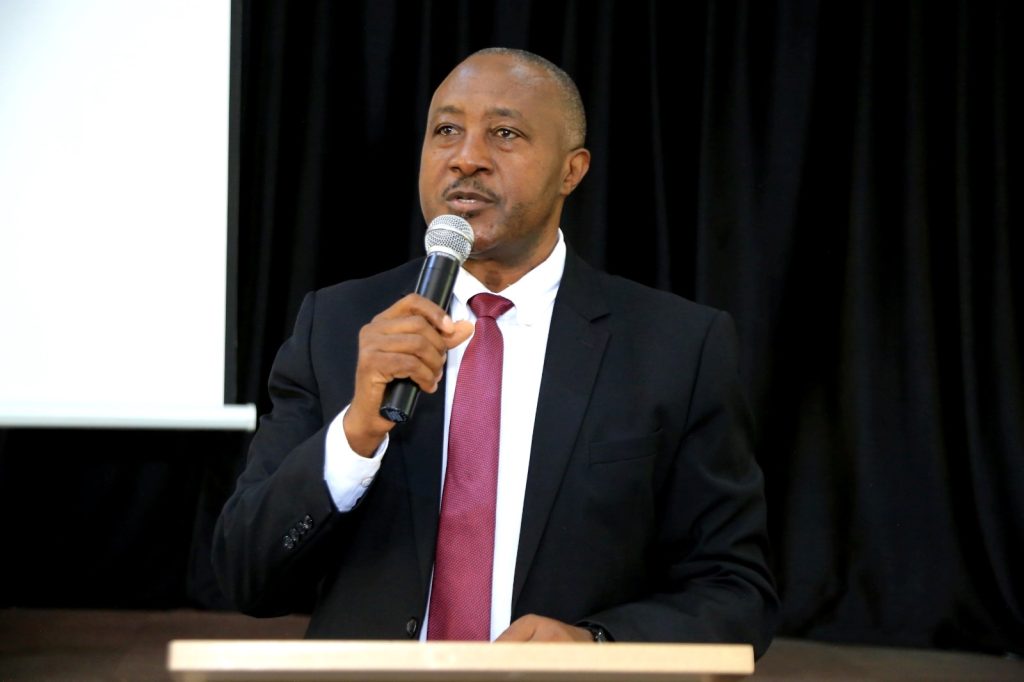
Funded to the tune of 7 million euros by the European Commission within the Horizon 2020 programme, and led by Alma Mater Studiorum – University of Bologna (Italy), FoodLAND project is committed to developing a range of innovations for local agriculture and aquaculture development, as well as to nudging consumers towards healthier eating behaviour in six African countries: Morocco, Tunisia, Ethiopia, Kenya, Uganda and Tanzania. The project specifically aims to empower smallholder farmers and food operators, foster nutrition responsive and sustainable agro-biodiversity, reinforce the productivity and resilience of food supply chains, and create new market opportunities at both the local and global scales, thereby encouraging the flourishing of rural communities. These achievements are envisaged to benefit both African and European consumers by providing them with traditional-based, healthy, nutritious foods, while encouraging the diffusion of African diets and aiding the fight against malnutrition, particularly in women and children.
Project dissemination workshops
In July 2024, the team held workshops in the project areas of Kamuli and Nakaseke districts to sensitize farmers on the research recommendations, and train them on the technologies developed to support smart farming.
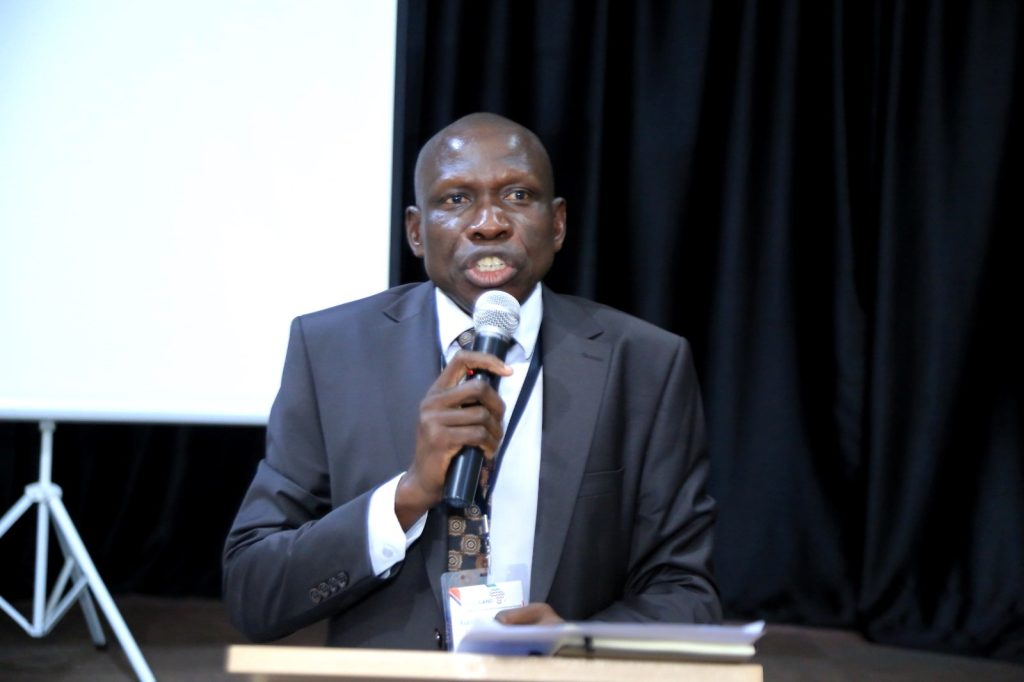
Stakeholders’ engagement/dissemination meeting in Wakiso District
On 29th August 2024, the project team held a dissemination meeting for stakeholders within Wakiso District to sensitize them on the challenges affecting Africa’s food systems, particularly Uganda, and the measures undertaken by the project to address them. Held at Makerere University and attended by staff and students, representatives from the Ministry of Agriculture, Animal Industry and Fisheries (MAAIF) and NARO, and representatives of farmer groups, the meeting discussed a number of issues including the engineering innovations for precision irrigation and fertigation, smart storage (charcoal cooling blankets to prolong shelf-life), and rodent control system developed by the research team. The meeting also discussed producer and consumer behaviours, value addition, integrated aquaculture and bio-based packaging, and nutritional recommendations to minimize under-nutrition, malnutrition, and non-communicable diseases.
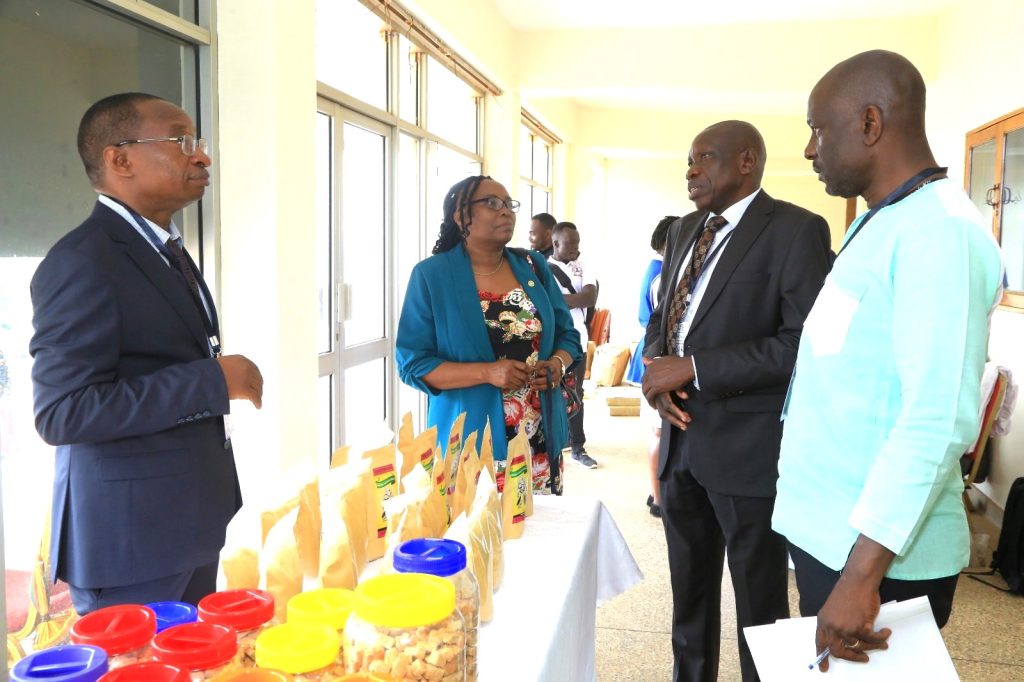
Presentations by the project team
Briefing participants on the project goal and objectives, Prof. John Muyonga, project coordinator in Uganda emphasized the need to address production and nutritional challenges along the entire value chain.
Delivering a presentation on producers and consumers’ behaviour, Prof. Johnny Mugisha noted that fear of risks was undermining uptake of innovations by the farmers. He highlighted the need for incentives to farmers to promote uptake, and called for support initiatives to reduce risks associated with long term investments such as climate change mitigation strategies. Additionally, Prof. Mugisha explained that the price of food or affordability was associated with consumer food choices, advocating for innovative models to distribute quality food to consumers at fair prices. The research also established that diets of rural women were greatly affected by their level of income, calling for initiatives to improve women’s income, and sensitization on good nutrition.
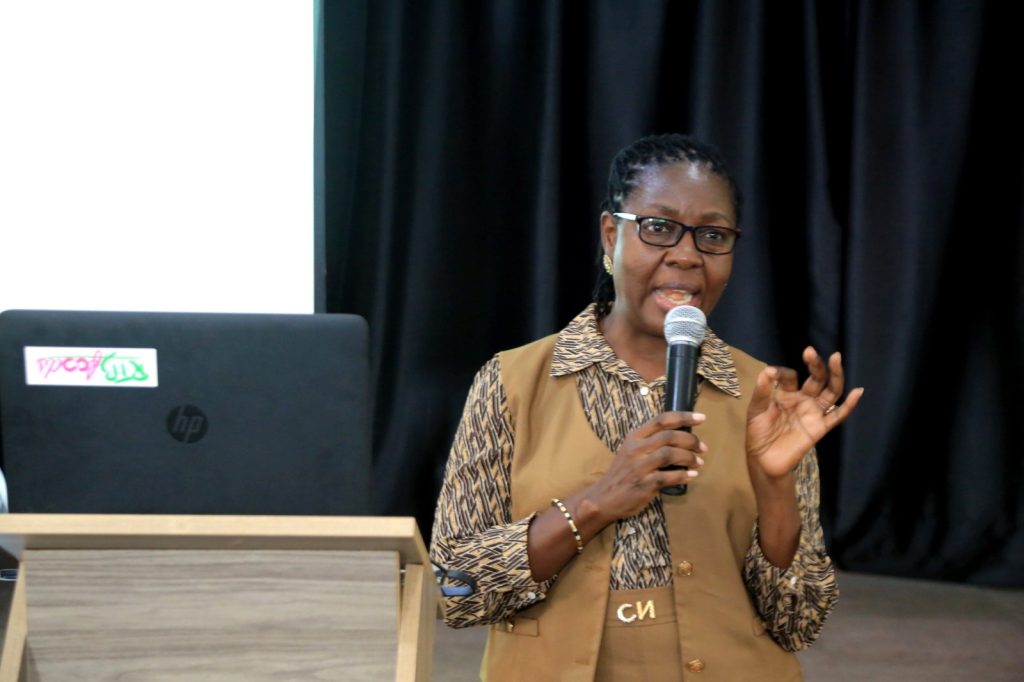
On behalf of Nutreal Ltd that led the value addition component on the project, Dr Dorothy Nakimbugwe, from the Department of Food Technology and Nutrition, College of Agricultural and Environmental Sciences (CAES), Makerere University, presented to participants the different nutrient-rich products developed. These include; orange fleshed sweet potato, bio-fortified beans, noodles, composite flours, and snacks/daddies. According to Dr Nakimbugwe, food processing improves nutrition and health and reduces post-harvest losses. “Consumption of the nutrient-enhanced foods contributes to higher dietary intake of key nutrients (protein and micronutrients e.g. iron and zinc), and can greatly reduce malnutrition. Reports from UNICEF indicate that malnutrition poses a significant barrier to the achievement of the Sustainable Development Goals (SDGs), affecting not only health but also education, economic prosperity, and societal well-being. In sub-Saharan Africa, over 30% of children under the age of five suffer from stunted growth due to chronic malnutrition. Uganda’s adult population also faces a malnutrition burden. In adults, under-nutrition and nutritional deficiencies lead to low productivity, poor health, and poor pregnancy outcomes.
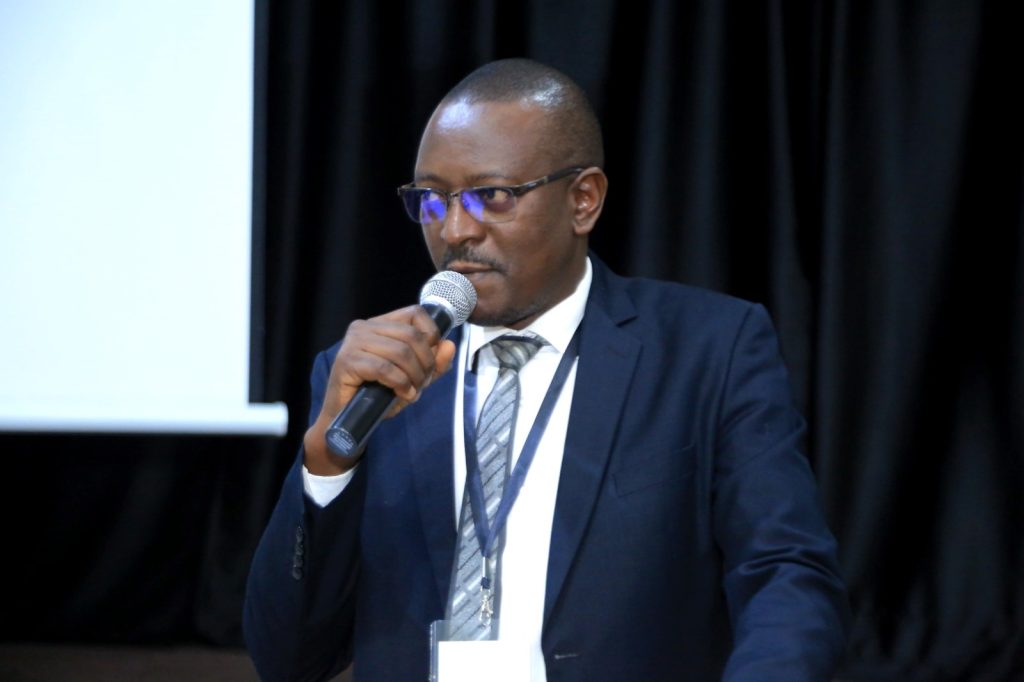
Presenting the nutritional recommendations, Dr Richard Bukenya from the Department of Food Technology and Nutrition at Makerere University indicated that the causes of malnutrition were largely behavioural. According to the Global Nutrition Report of 2022, Uganda has shown limited progress towards achieving the diet-related non-communicable disease (NCD) targets. 10.4% of adult (aged 18 years and over) women and 2.3% of adult men are living with obesity. Uganda’s obesity prevalence is lower than the regional average of 20.8% for women and 9.2% for men. At the same time, diabetes is estimated to affect 5.6% of adult women and 5.6% of adult men. The 2018 Non-Communicable Diseases (NCD) survey by the World Health Organization (WHO), also indicates an increase of diet related health conditions including obesity, diabetes, Cardio Vascular Disease, Coronary Heart Disease, and Cancer with up to 33% of deaths in Uganda related to these non-communicable diseases. The FoodLAND project has worked to supplement efforts by Government to reduce malnutrition. Following desk reviews and stakeholder engagements, the project developed 30 nutritional recommendations for adults and the elderly. These include; i) Daily consumption of locally available fruits and vegetables, whole starchy staples, and protein-rich foods including beans, peas, nuts, fish, eggs, and meat; ii) Limiting the consumption of fried foods, salt, alcohol, and sweetened beverages; iii) Hydrate with fluids, preferably water; iv) Regular engagement in moderate-intensity physical activity like brisk walking, digging, swimming, aerobics, and cycling; v) Undertaking medical examination at intervals of no longer than 6 months to facilitate timely detection and treatment of ailments like diabetes, hypertension, high plasma cholesterol and cancers.
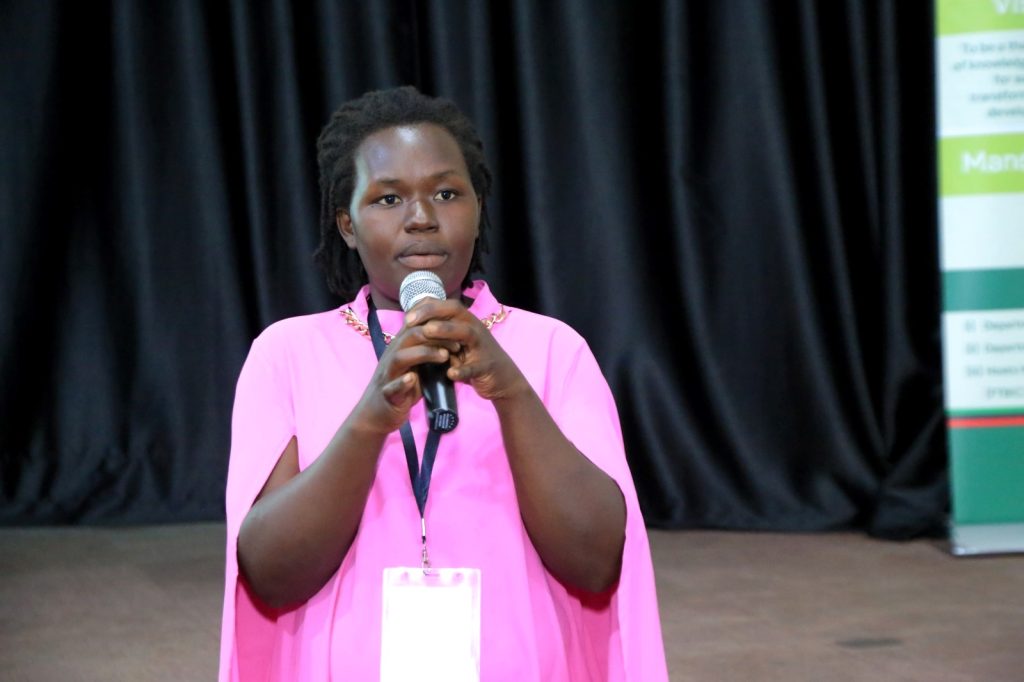
Remarks by the Vice Chancellor
On behalf of the Vice Chancellor of Makerere University, the Deputy Director, Directorate of Research and Graduate Training, Prof. Julius Kikooma commended the project team for the initiative. “The research focus of the FoodLAND project is extremely important, especially for us as a country that is highly reliant on agriculture and yet faced with malnutrition, poor market access from agricultural products and the challenge of climate change. While Africa has potential to grow diversity of food, the continent suffers high levels of under-nutrition, nutritional deficiencies, food poisoning and has in recent decades also registered marked rise in prevalence of over-nutrition and associated non-communicable diseases,” he noted. He commended the project for being in line with the University’s 2020-2030 strategic plan, which seek, among others, to strengthen generation and uptake of knowledge and technologies that contribute to socio-economic transformation of people in Uganda and beyond. He appreciated the European Commission for the support extended to the project.
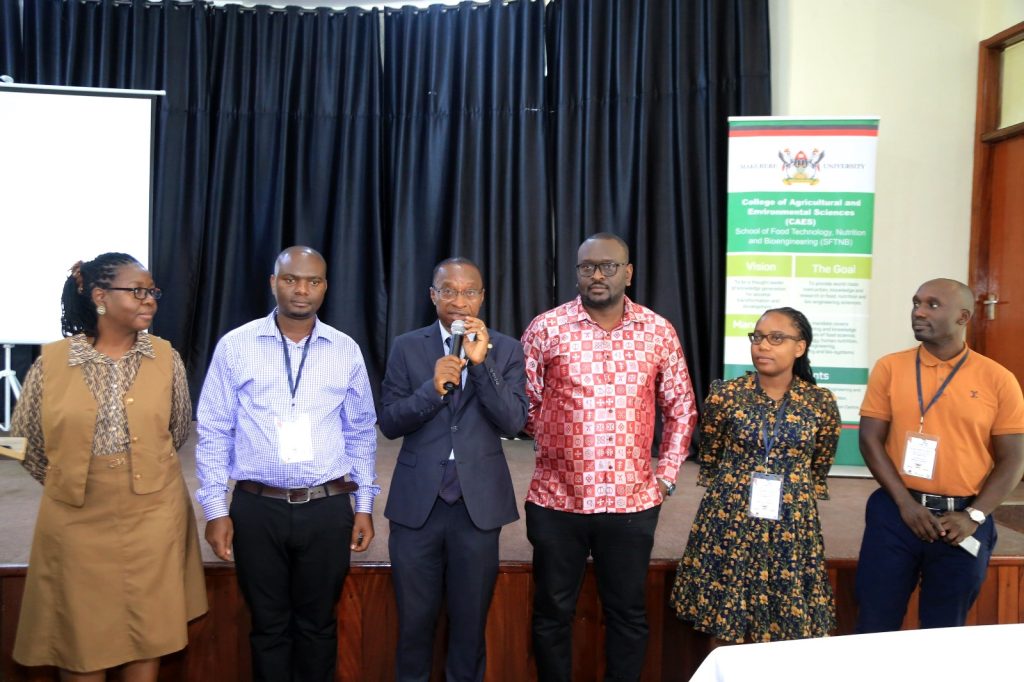
MAAIF Representative
In his address, Mr. Steven Byantware, MAAIF Director for Crop Resources, who represented the Minister of Agriculture, Animal Industry, and Fisheries (MAAIF) appreciated the project team for supporting government programmes intended to foster agro-industrialization and mechanisation of agriculture with the aim of transforming the country from subsistence to commercial farming. He urged the team to popularise the research findings through extensive dissemination programmes.
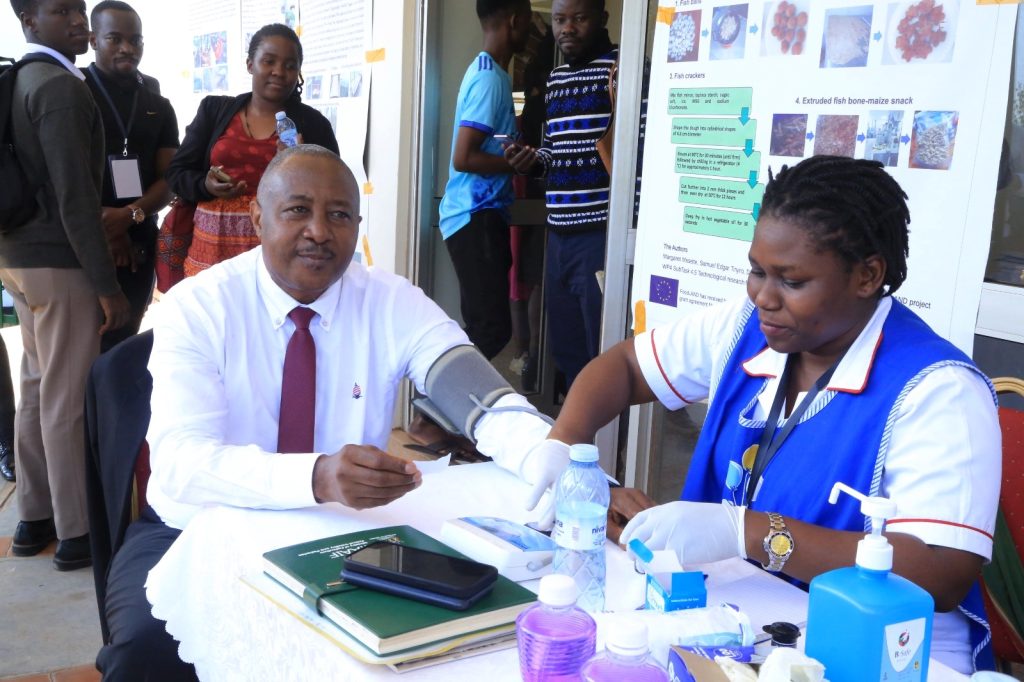
Director General – NARO
On behalf of the Director General of NARO, Dr. Sadik Kassim, Deputy Director General commended the partnership between Makerere and the organization. Highlighting the challenges posed by climate change and mechanization of agriculture, Dr. Kassim said the project is crucial in promoting agro-bio-diversity and nutrition bio-diversity. Regarding uptake and sustainability, he urged the project team to work with the government and private sector to strengthen the innovations. He equally appreciated the European Commission for funding the project.
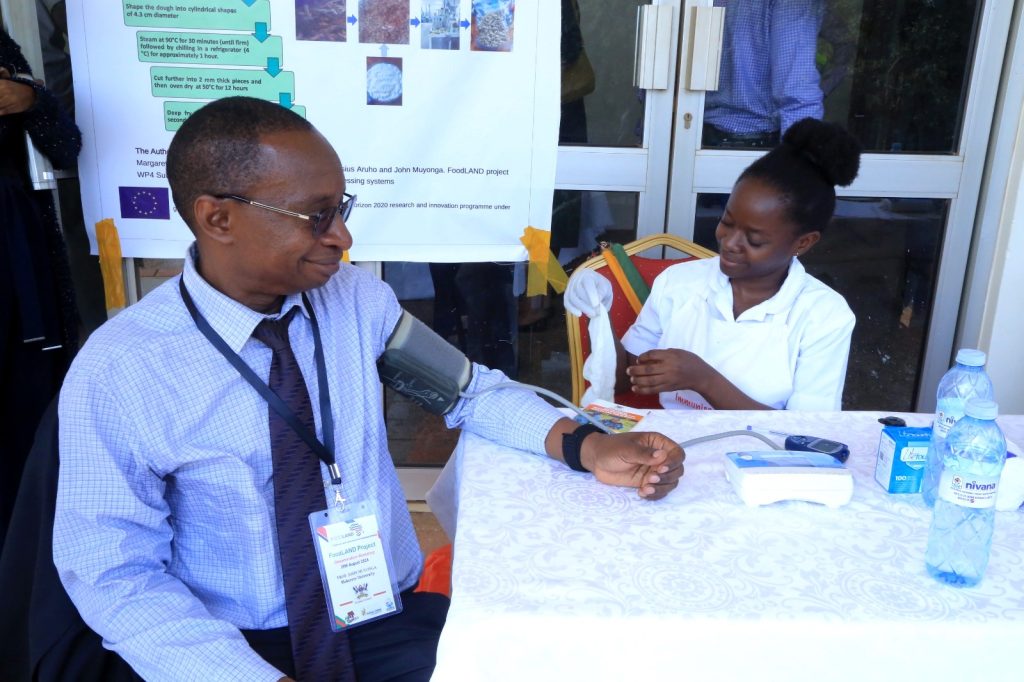
In her remarks, the Dean, School of Food Technology, Nutrition and Bio-engineering, Dr Julia Kigozi commended the project team for the initiative, saying it promotes the CAES innovation-intentional agenda.
The meeting featured testimonies by some of the farmers supported by the project who expressed gratitude, noting that their livelihoods had greatly transformed following the application of the knowledge acquired from the project.
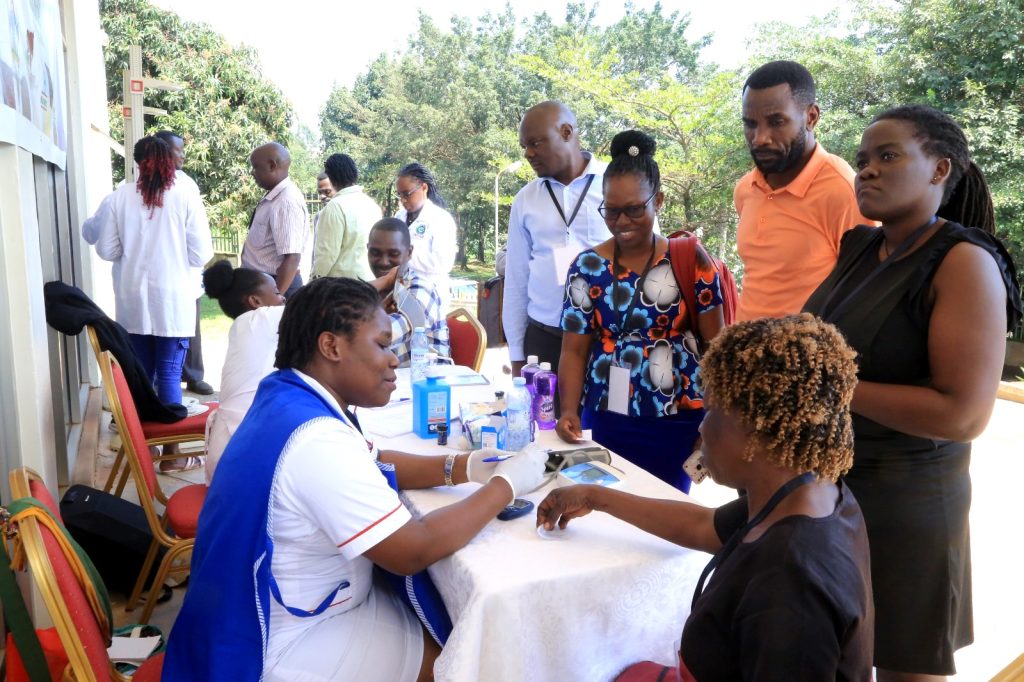
Exhibition, clinical screening, and launch of a 30-day healthy diet challenge
On the side-lines of the dissemination meeting was an exhibition of the different products developed by the project team, and clinical screening as well as launch of a 30-day healthy diet challenge.
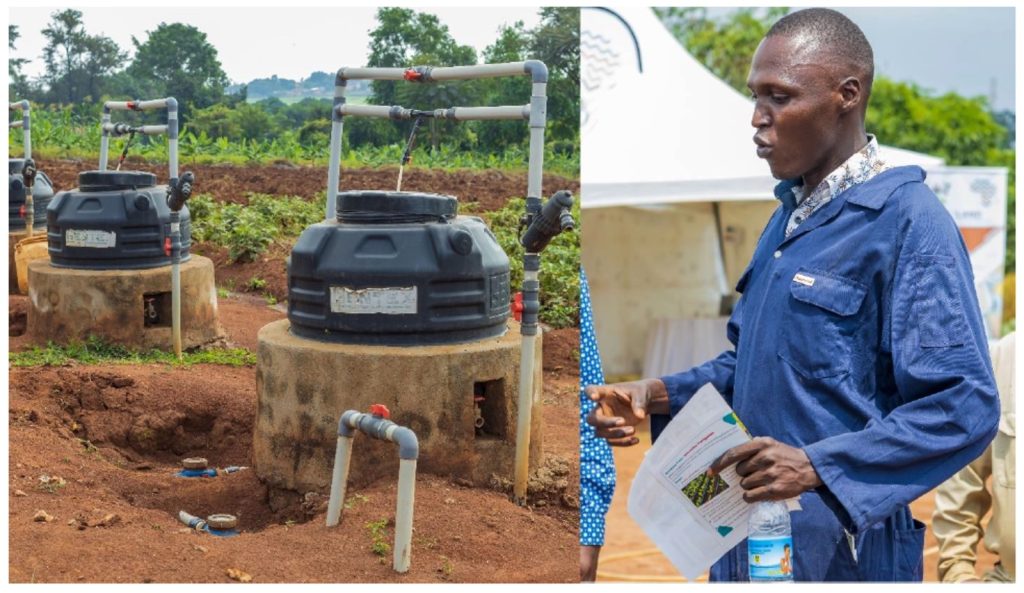
More about the project;
You may like
-


Call for Applications: Responsible Conduct of Research (RCR) Training Course
-
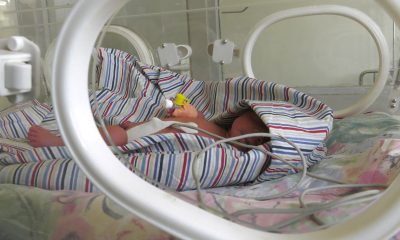

Call For Applications: PhD Fellowship Training Position
-
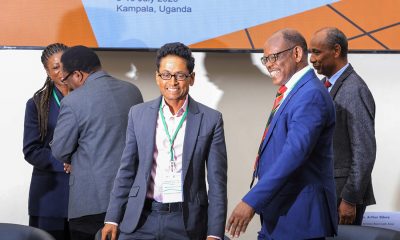

Makerere Hailed for Its Leadership in Health Policy and Knowledge Systems
-
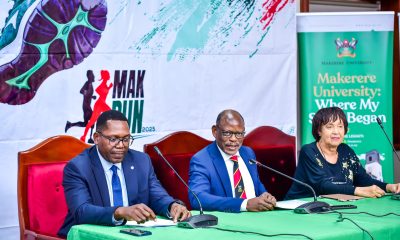

NCBA Commits UGX 1.45 Billion to Makerere Marathon, Pledges Five-Year Support for Inclusive Education
-
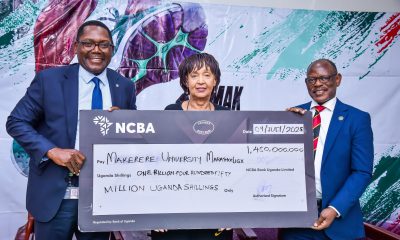

Mak Marathon Unveils NCBA as Platinum Sponsor
-
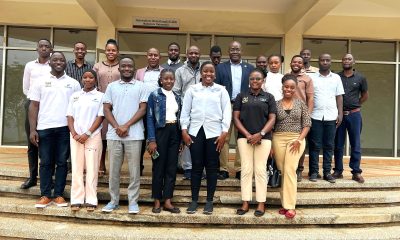

SophiA Project Upgrades Medical Infrastructure at Buvuma Health Centre IV, Trains Technicians for Maintenance Works
Agriculture & Environment
SophiA Project Upgrades Medical Infrastructure at Buvuma Health Centre IV, Trains Technicians for Maintenance Works
Published
4 days agoon
July 9, 2025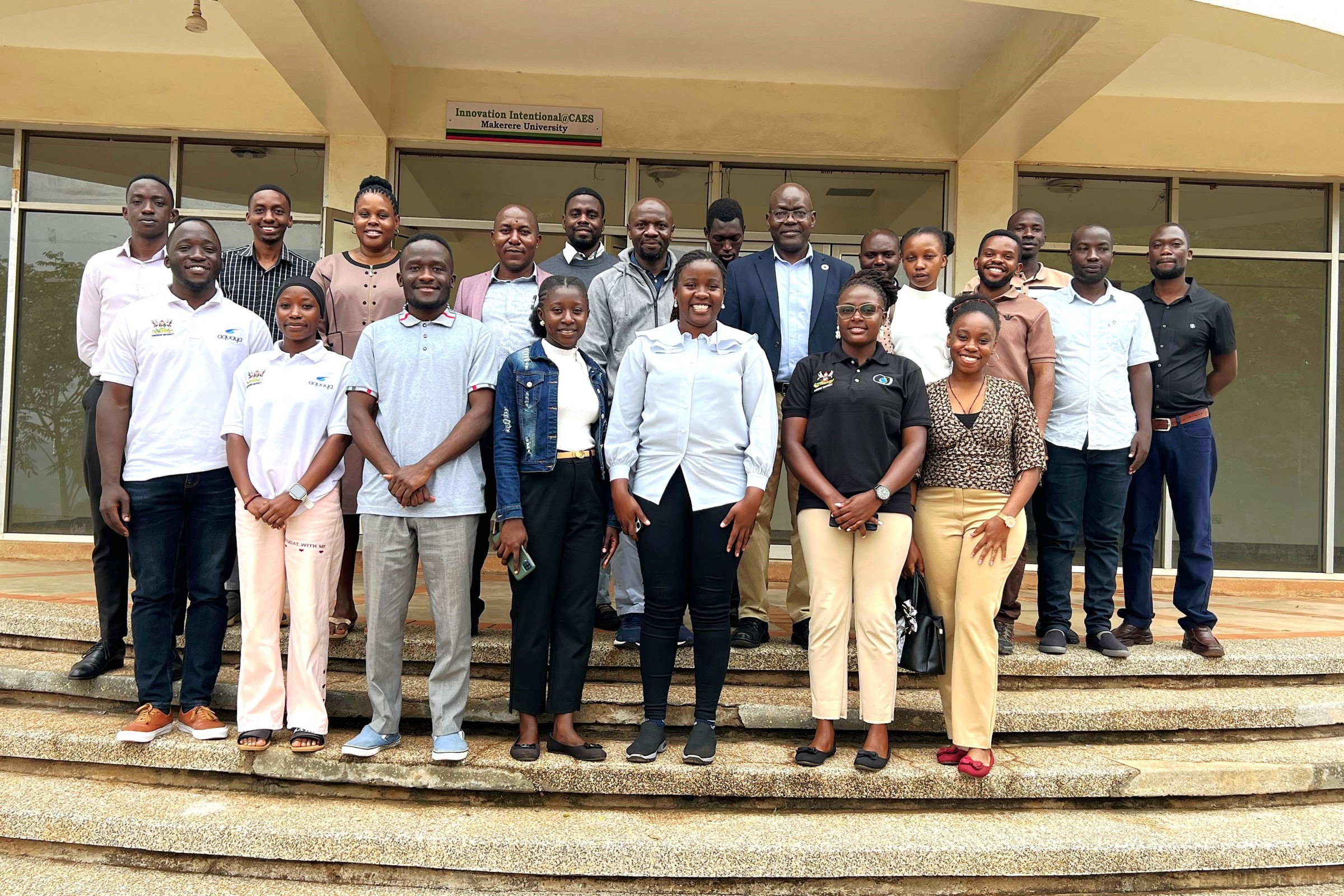
Overview of the Sustainable Off-Grid Solutions for Pharmacies and Hospitals in Africa (SophiA) Project
Despite ongoing urbanization across Africa, the majority of the population still resides in rural and remote areas, where infrastructure development remains limited. These regions face significant challenges such as lack of access to healthcare, education, clean water, and reliable electricity, contributing to higher rates of illness and poverty compared to urban centres. According to reports, Sub-Saharan Africa has approximately 120,000 public health facilities (22,000 hospitals and 98,000 health posts), of which around 26% lack any electricity access, and only 28% have reliable power supply.
Access to good healthcare is critical for sustainable development. However, many rural medical centres operate under harsh conditions – using polluted water, lacking cooling for medicines, and facing poor sanitation – largely due to unreliable electricity and water supply. Although half of the population in Sub-Saharan Africa lacks electricity, the region has abundant renewable energy potential that can be effectively harnessed through off-grid solar photovoltaic (PV) systems.
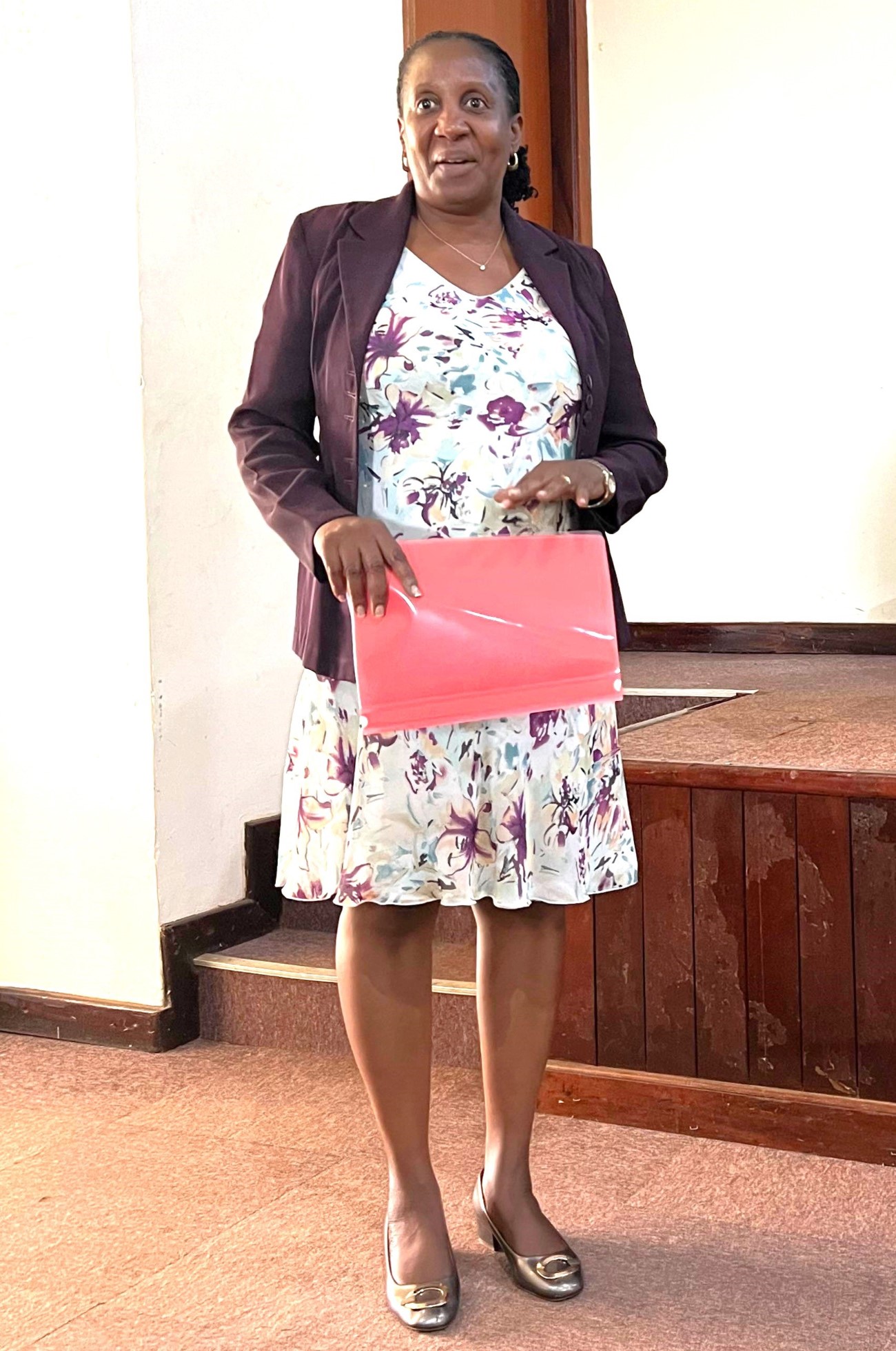
To address the above-mentioned challenges facing the African Continent, Makerere University in partnership with 13 organizations across Europe and Africa developed a project titled, “Sustainable Off-grid solutions for Pharmacies and Hospitals in Africa (SophiA)”. The five-year project that began on 1st October 2021 is funded by the European Union (Project: 101036836 – SophiA – H2020-LC-GD-2-3-2020). At Makerere University, the project is coordinated by Dr. Nicholas Kiggundu, Associate Professor in the Department of Agricultural and Biosystems Engineering, College of Agricultural and Environmental Sciences (CAES).
Piloted in Burkina Faso, Cameroon, Malawi, and Uganda, SophiA aims to provide sustainable off-grid energy solutions to rural and remote health facilities, fostering economic growth and ensuring equitable access to energy and healthcare. Using various technologies, such as photovoltaics, solar thermal, electrical and thermal storage, water treatment and natural refrigerants with low global warming potential, SophiA has developed and manufactured locally innovative, modular, affordable and efficient solar powered systems for providing:
- Safe and clean drinking water, free of bacteria and viruses, and deionised water for medical purposes;
- Hot water and steam production for thermal requirements of the hospitals;
- Cooling of medicines and food at +5°C;
- Low temperature storage of blood plasma and vaccines at -30°C;
- Ultra-low temperature storage of sensitive medication (e.g. some Covid-19 or Ebola vaccines) at -70°C.
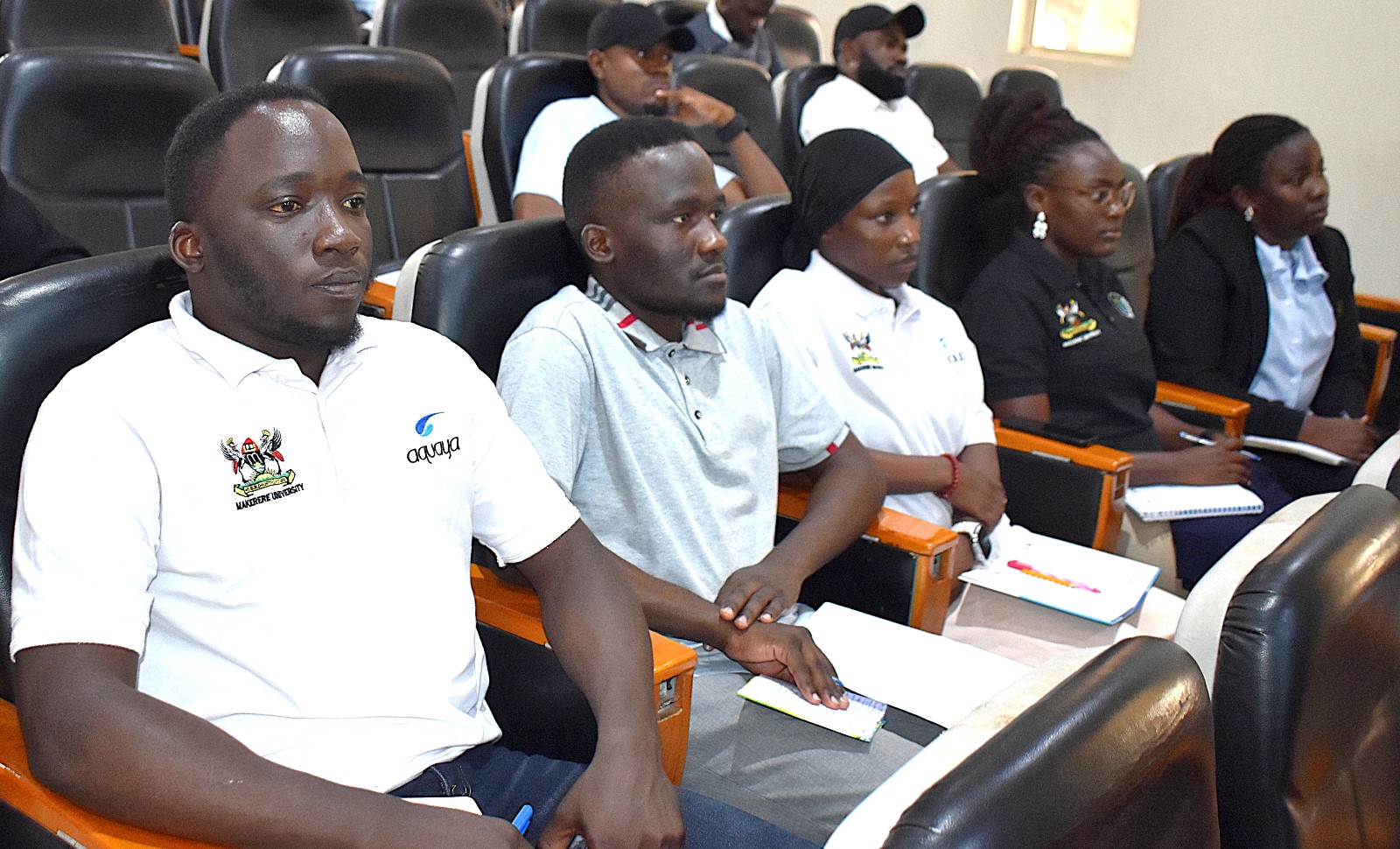
In addition, PV MedPort, a simple and 100% solar-powered solution has been developed and tested as a mobile health care station in small remote areas in 4 different geographical conditions in Africa. The SophiA system has been manufactured in Africa and will provide, for the first-time, innovative solutions based on climate-friendly natural refrigerants to cover cooling demand for three different temperature ranges (-70°C, -30°C and +5°C). The system has been tested and demonstrated at four rural hospitals in remote regions throughout the African continent covering the major geographical regions and different climatic conditions in Burkina Faso, Cameroon, Malawi and Uganda.
SophiA Project initiatives in Uganda
In Uganda, all Health Centre IV hospitals with surgical theatres have been connected to the national grid except Buvuma Health Centre IV, which serves over 120,000 people scattered across 52 islands. Recognizing this gap, the Ministry of Health selected Buvuma Health Centre IV for the SophiA project to demonstrate sustainable off-grid solutions.
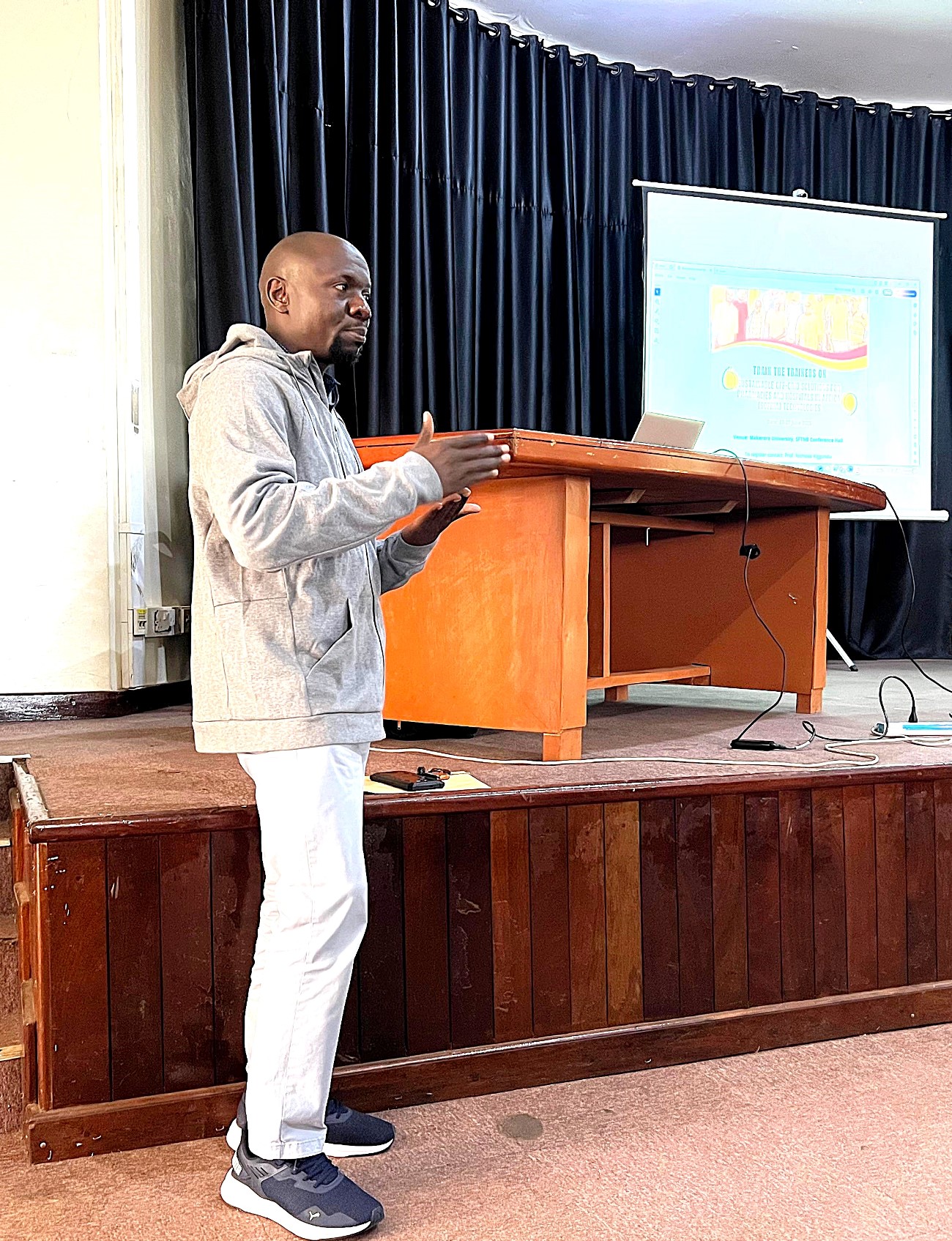
The SophiA System at Buvuma Health Centre IV provides the following services:
- Off-grid electricity supply
- Safe, clean drinking water for patients, staff, and the community
- Hot water and steam systems crucial for maternal care
- Solar-powered cooking and meal preparation
- Cooling systems for surgery and intensive care units
- Refrigeration for medicines at +5°C, blood plasma storage at -30°C, and ultra-low temperature storage (-70°C) for sensitive vaccines such as those for COVID-19 and Ebola
Training of Trainers Workshop
As the SophiA project approaches completion in September 2025, it is vital to establish a skilled pool of technicians capable of handling maintenance and minor repairs of the system components, including solar panels, water treatment units, generators, batteries, and cooking kits.
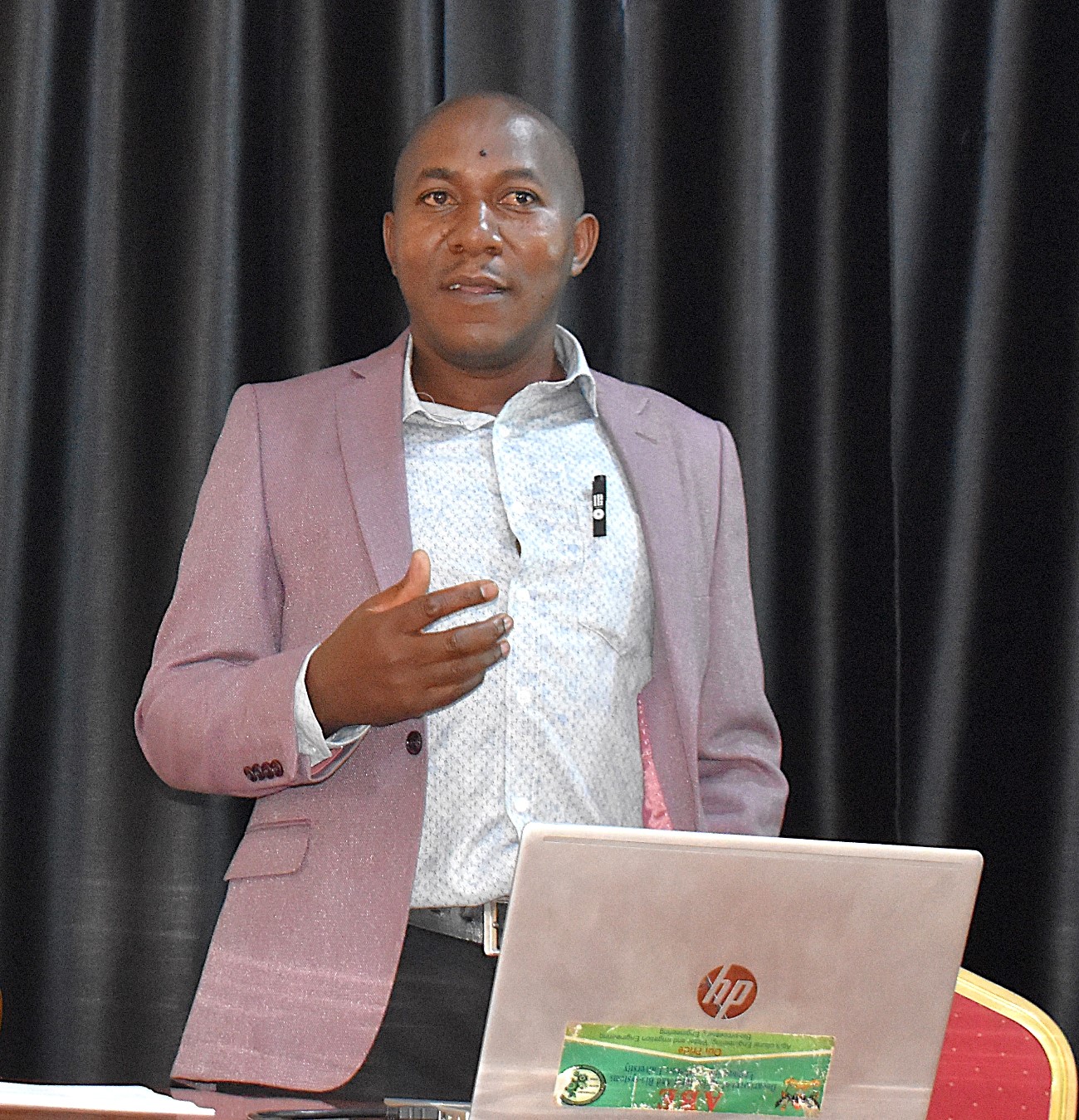
From June 23 to 27, 2025, Makerere University hosted a comprehensive Training of Trainers workshop. The training programme encompassed a diverse range of topics delivered by subject matter experts from institutions, including Makerere University (Department of Agricultural and Biosystems Engineering – CAES, and the College of Engineering, Design, Art and Technology – CEDAT), Hochschule University of Applied Sciences, and Busitema University. Participants were carefully selected from diverse professional backgrounds, including recent engineering graduates from CAES and CEDAT, Makerere University, University technical staff, personnel from Kyambogo University, officials from Buvuma District Works and Health Departments, and electricians from Kampala City. The training sessions were conducted at Makerere University and Buvuma Health Centre IV Hospital.
Training Modules Included:
- Sustainable energy systems and their practical applications
- Energy generation and storage technologies
- Solar water heating: design, operation, maintenance, and performance optimization of solar water heaters, crop dryers, and concentrating solar heaters
- Solar PV technologies in Uganda: cell technology, system design, operations, maintenance, and hands-on practicals for standalone and grid-connected systems
- Public health implications of water quality
- Water treatment and quality management, including protocols, parameters, and case study on the MCDI treatment system
- Water quality testing methodologies
- Introduction to sustainable refrigeration and cooling technologies
- Environmental impact and safety considerations for refrigerants
- Refrigeration cycles and component overview
- Life cycle assessment of SophiA technologies
- Thermal energy storage within the SophiA system
- Steam as a productive energy source
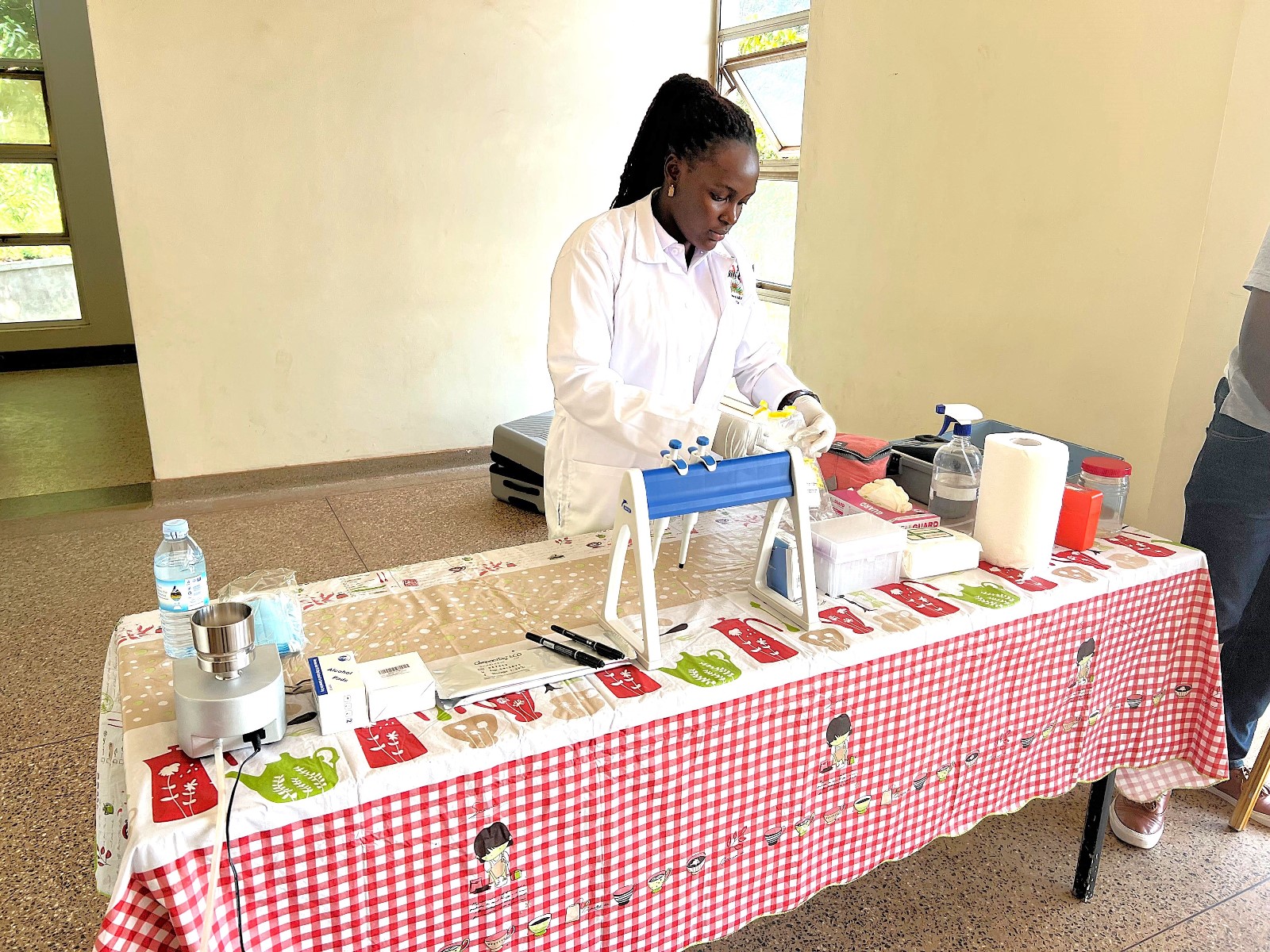
The Training Sessions
Day One: Introduction to foundational concepts in solar energy technologies
The first day of the SophiA Train the Trainers Workshop focused on building foundational knowledge in sustainable and solar energy systems. Led by Dr. Peter Tumutegyereize and Dr. Francis Mujjuni, participants explored a range of technologies and applications critical to clean energy deployment.
Key topics included:
Sustainable Energy Systems: Introduction to renewable energy systems including bioenergy, hydro, wind, geothermal, hydrogen fuel cells, and battery storage.
Solar Radiation & Geometry: Understanding solar constants, irradiance, and the impact of atmospheric conditions on solar performance.
Solar Thermal Technologies: Detailed look at solar water heating systems (FPCs and ETCs), maintenance, sizing, and solar dryers for agricultural and industrial use.
Photovoltaic (PV) Systems: Working principles, types of PV cells, performance factors, and diagnostics. Practical testing techniques and metrics like Voc, Isc, MPP, and PR were discussed.
Simulation & Application: Olivia Nakiwanuka demonstrated a PVsyst-based simulation of a 2.55 kWp standalone system for a conference hall, showing a high solar fraction (97.88%) and low LCOE (USD 0.03/kWh).
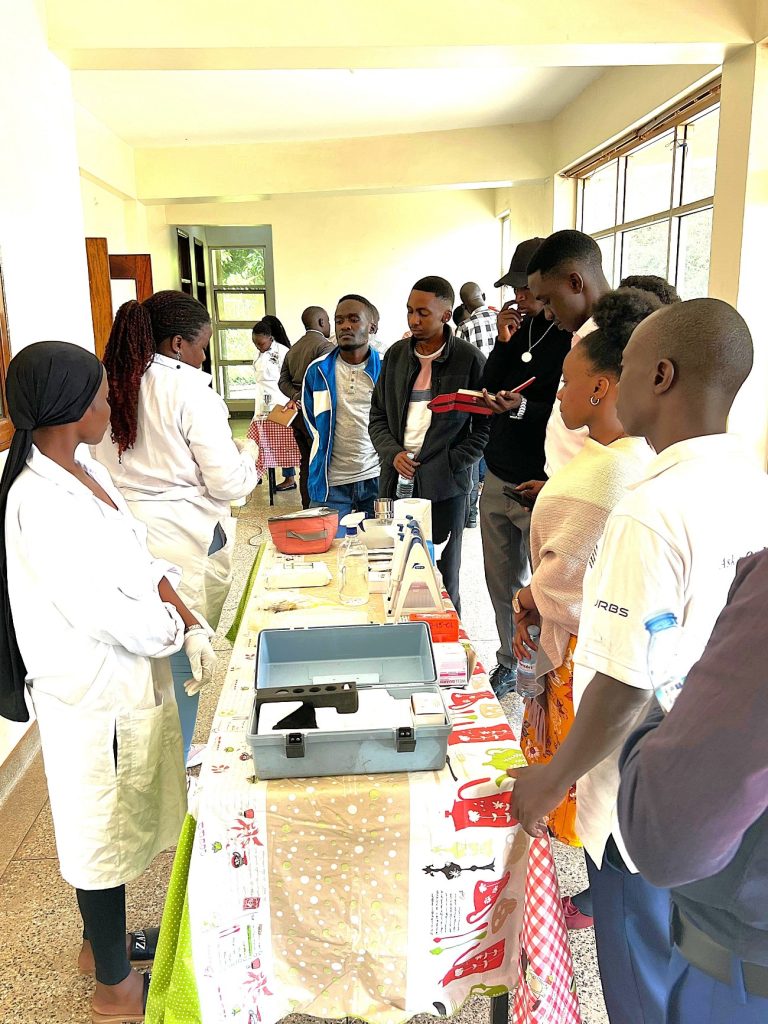
The sessions emphasized practical skills, performance analysis, and real-world application, equipping participants to train others and support solar adoption, especially in rural and off-grid settings.
Day Two: Water Treatment Technologies
The second day focused on water treatment technologies relevant to low-resource healthcare settings. Facilitated by Sneha De and Mr. Duc Dinh Ngoc from Hochschule Karlsruhe University, sessions covered technical, environmental, and operational challenges, with contributions from Dr. Joshua Wanyama on water quality management and Dr. Prossie Nakawuka on practical water testing.
Key challenges addressed included unreliable water supply and contamination in healthcare facilities, emphasizing the need for decentralized water treatment, especially in rural areas.
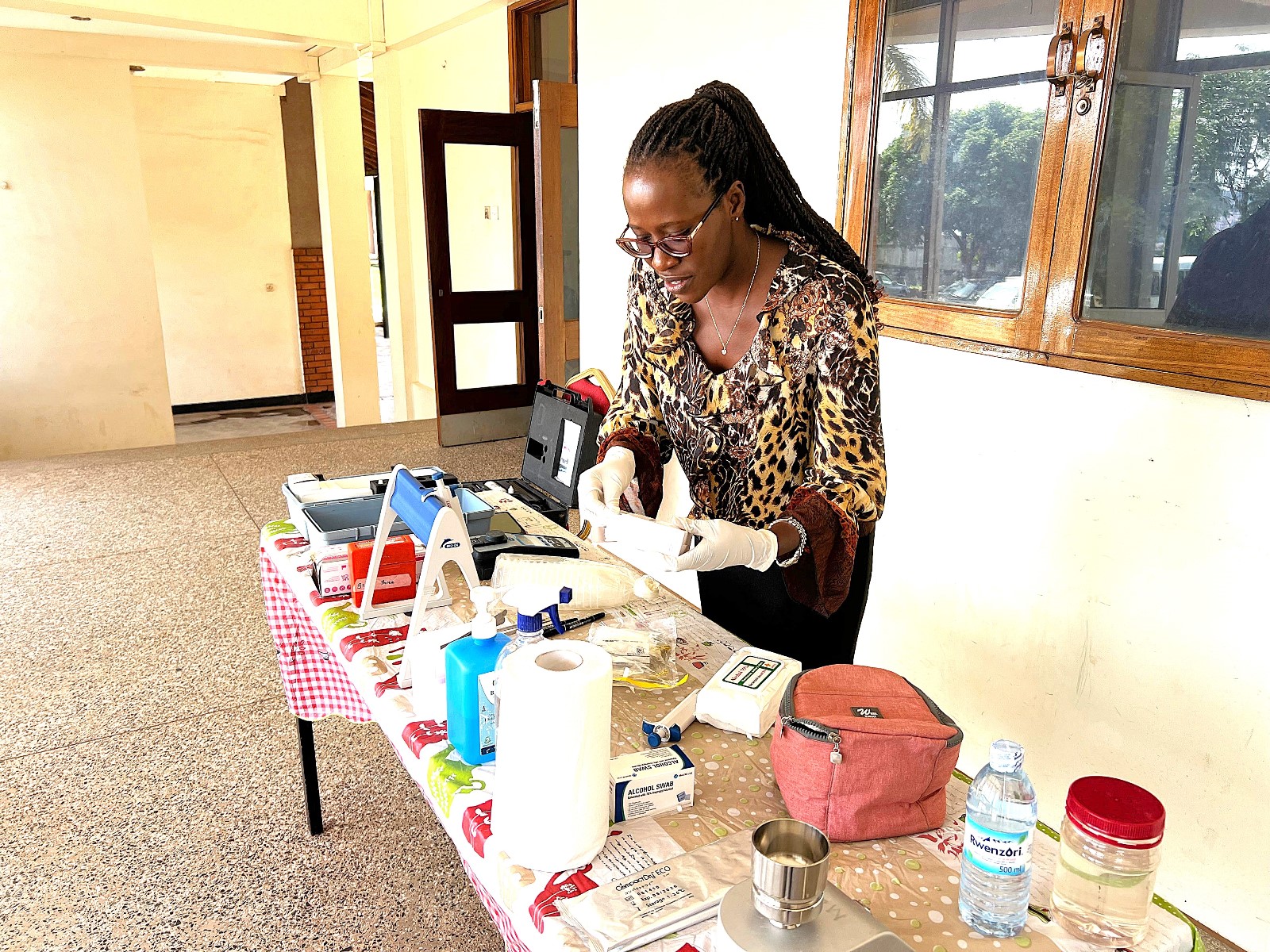
Sneha De reviewed biological and physical/chemical water treatment methods, highlighting technologies such as activated sludge, filtration, membrane bioreactors, and advanced disinfection techniques. The SophiA modular water treatment system, integrating ultrafiltration and membrane capacitive deionisation (MCDI), was introduced as a scalable solution for producing safe drinking and deionised water for medical use.
Mr. Duc Dinh Ngoc trained participants on the MCDI technology, an energy-efficient method for salt and fluoride removal suitable for low-salinity water.
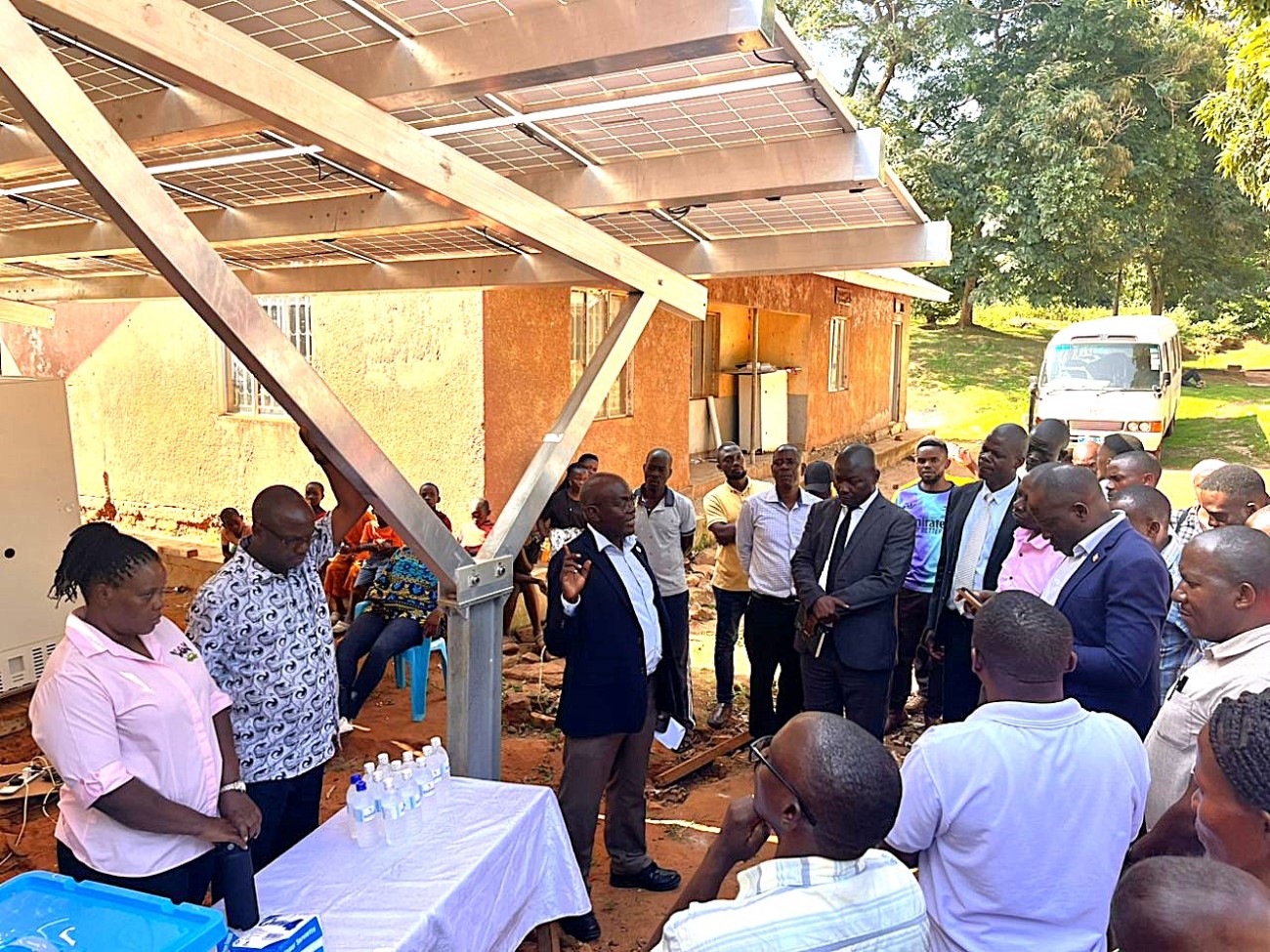
Dr. Joshua Wanyama discussed the water quality management protocols, outlining key physical, chemical, and biological water parameters and monitoring strategies, including modern IoT-based tools, to ensure water safety and public health.
The day concluded with a hands-on lab session by Dr. Prossie Nakawuka, where participants practiced water quality testing using turbidimeters, incubators, and filtration techniques.
Overall, Day Two combined theoretical insights, technology demonstrations, and practical skills, preparing participants to implement sustainable water treatment and quality management systems in healthcare environments.
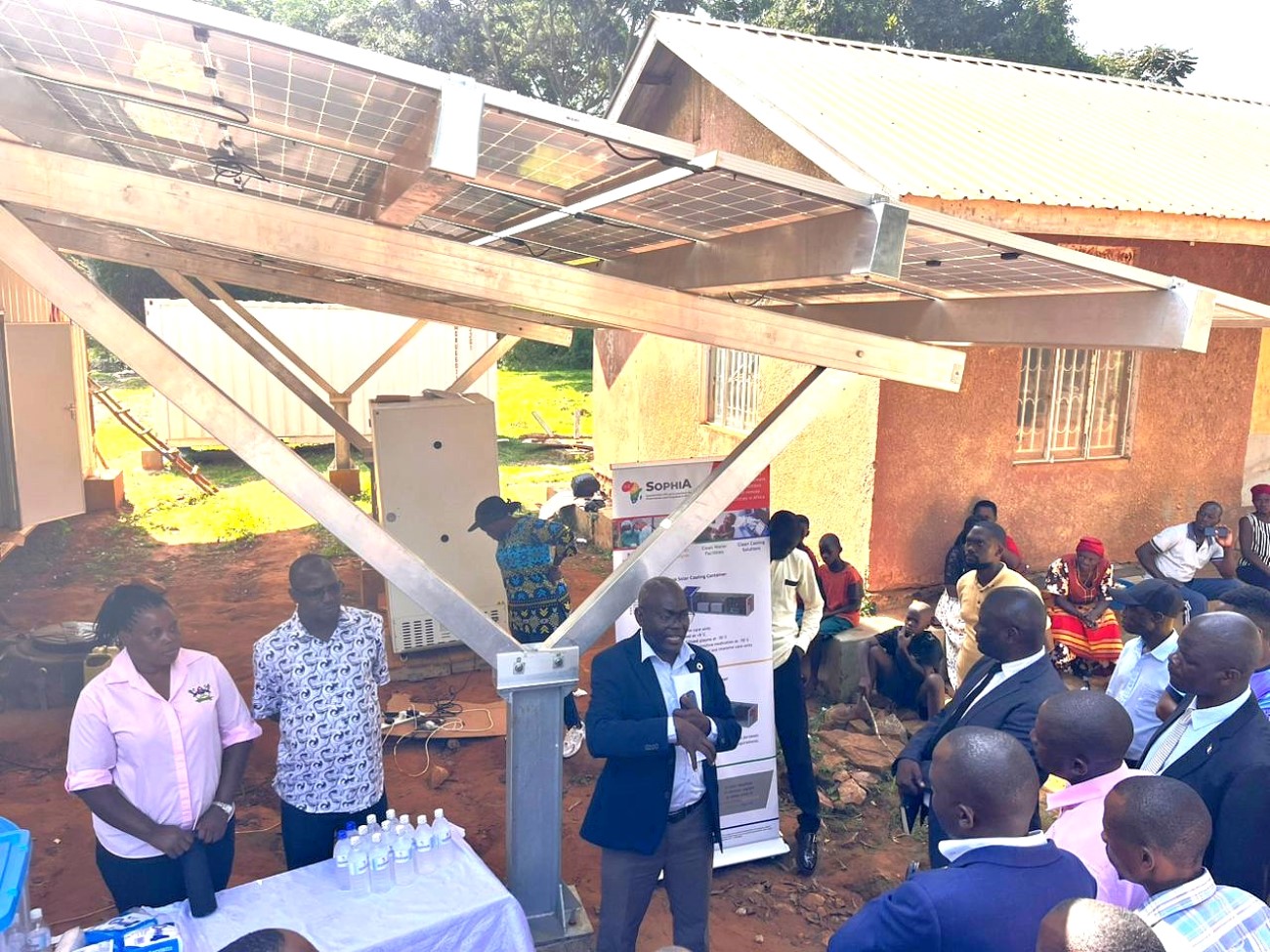
Day Three: Refrigeration and Cold Storage
The third day of the SophiA workshop focused on sustainable refrigeration and cold storage technologies tailored for healthcare in Sub-Saharan Africa. Experts discussed energy-efficient, climate-friendly cooling solutions vital for vaccine storage, medicines, and diagnostics, especially in off-grid and rural settings.
Key highlights included the introduction of solar-powered and biomass-based refrigeration systems, thermal energy storage methods, and the use of natural refrigerants like propane, ammonia, and CO₂ as environmentally safer alternatives. Presentations emphasized the critical role of refrigeration in healthcare and the urgent need to replace harmful chemicals with sustainable technologies.
Sessions covered real-world applications such as the SophiA cooling containers in Burkina Faso, safety protocols for flammable refrigerants, and the environmental and economic benefits of solar refrigeration systems assessed through life cycle analysis.
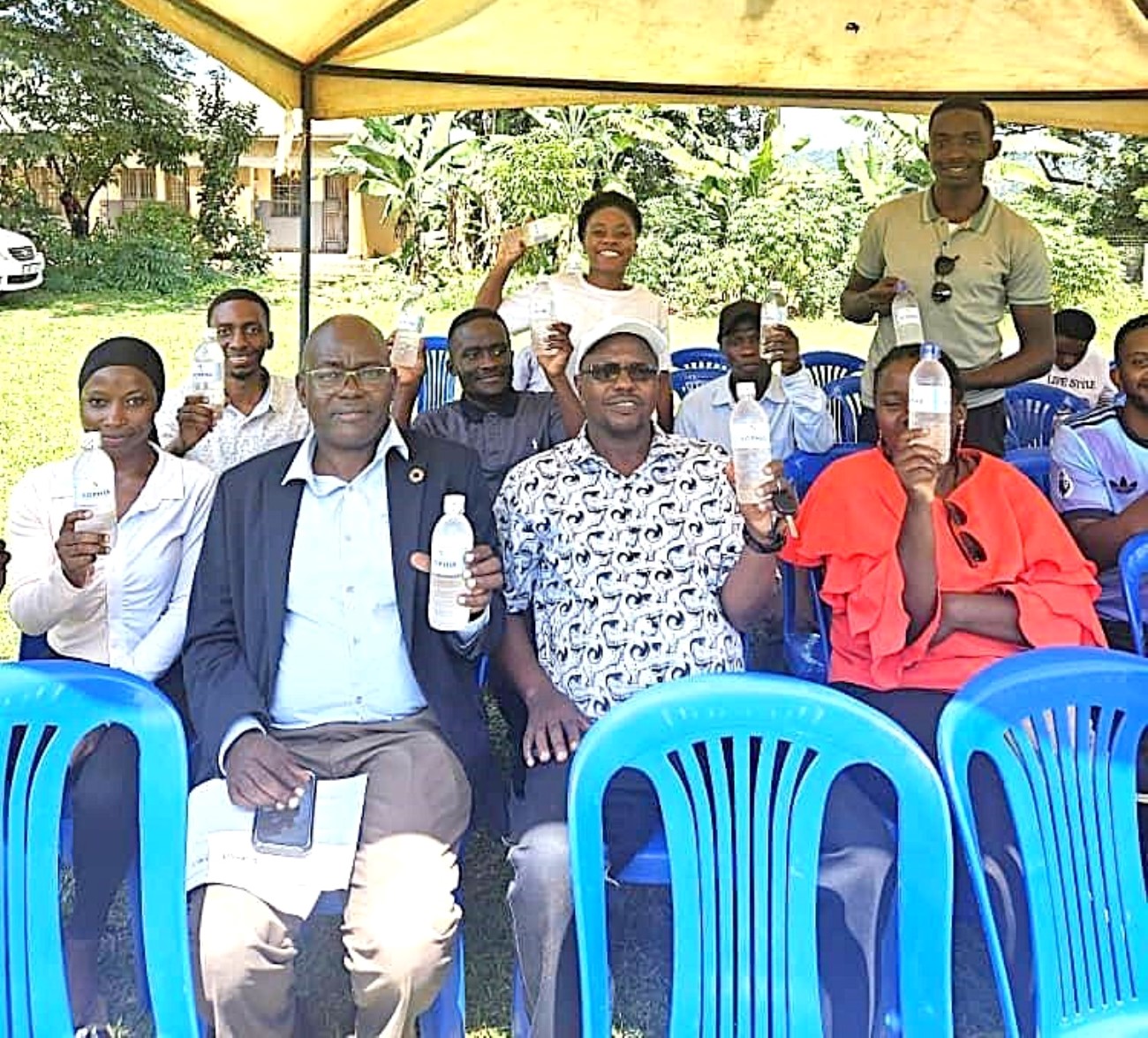
The day ended with an interactive quiz and discussion, reinforcing learning and encouraging participants to apply sustainable cooling practices in their communities.
Day Four: World Refrigeration Day & Field Visit to Buvuma Island
The fourth day of the SophiA Train the Trainers workshop was dedicated to the celebration of the World Refrigeration Day and a field excursion to Buvuma Island, providing participants with a unique opportunity to witness the SophiA system in action. The day was coordinated by Dr. Sarah Bimbona and Dr. Nicholas Kiggundu, who led the delegation to Buvuma Health Centre IV, the pilot site for the SophiA installation in Uganda.
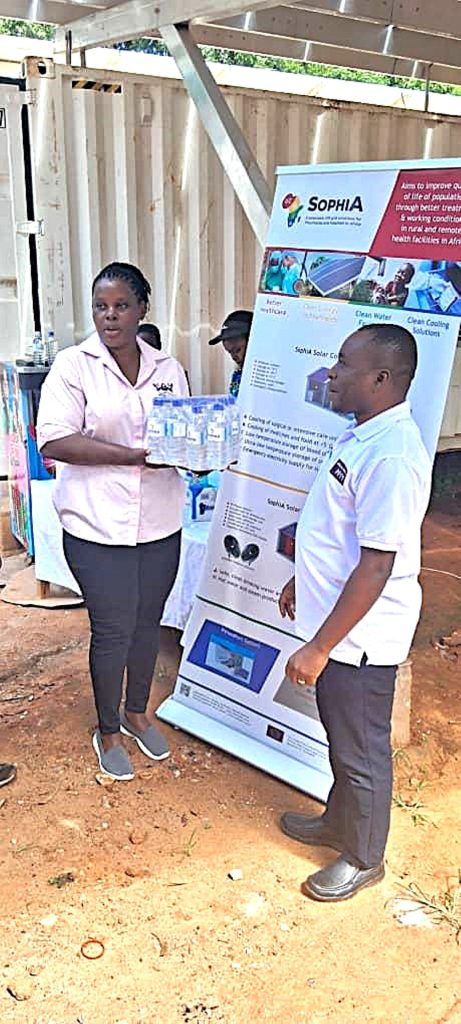
The visit served as both a practical extension of the previous day’s technical sessions and a community engagement event. Participants were able to observe the installed SophiA system, which integrates solar-powered refrigeration, water treatment and steam generation technologies designed for off-grid healthcare settings. During the visit, Dr. Kiggundu provided a detailed briefing to local stakeholders, including representatives from the Buvuma District Local Government, delegates from the Buganda Kingdom, and members of the local community. He explained how the SophiA system will enhance healthcare delivery on the island through reliable cold storage for vaccines and medicines, access to clean drinking water, and steam generated for cooking and use in the maternity wards.
As part of the long-term sustainability plan for the SophiA system, the launch of SophiA Water was announced, an entrepreneurial initiative designed to generate revenue locally for the operation and maintenance of the system.
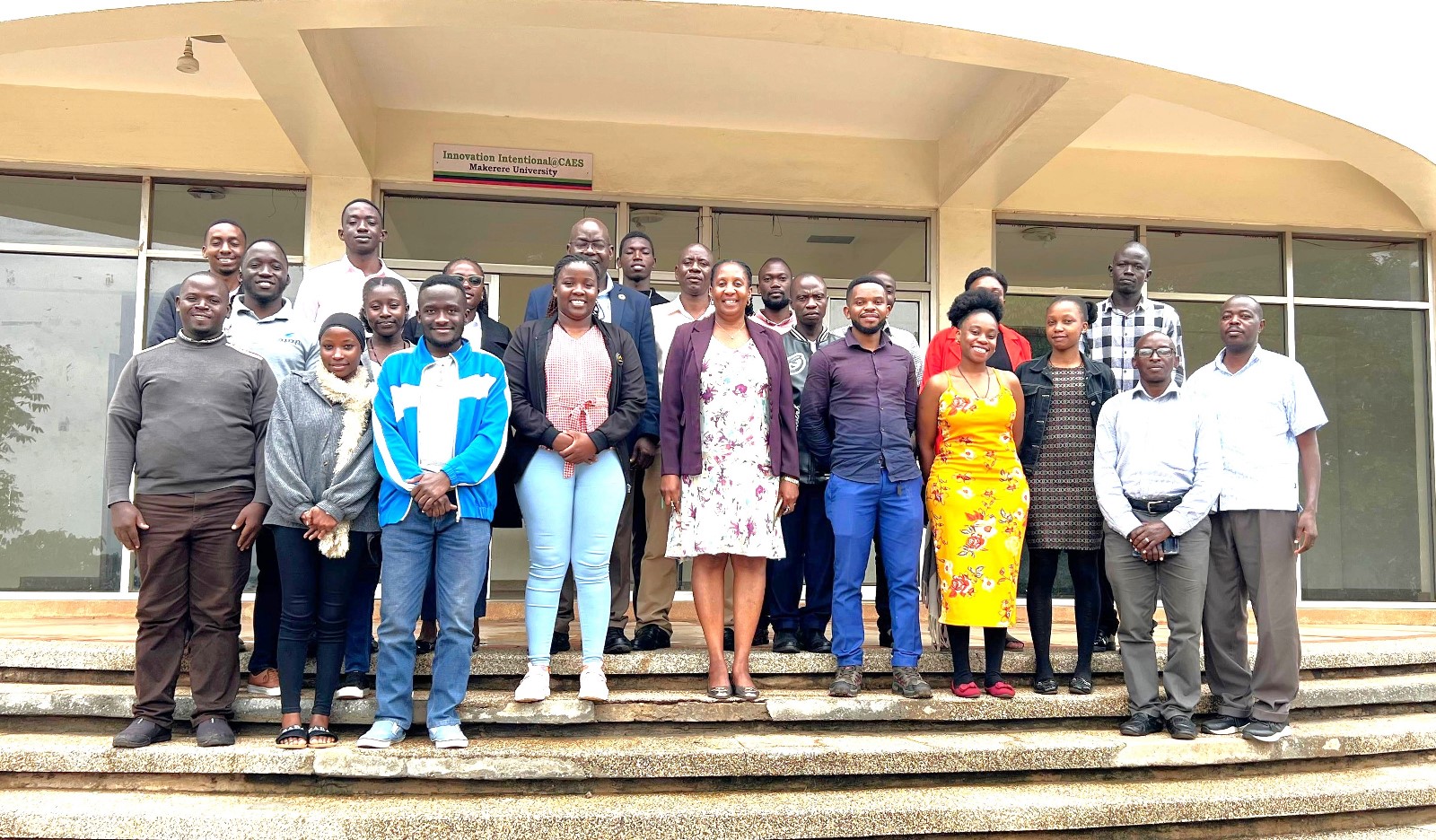
The field trip ended with a certificate awarding ceremony in appreciation of the participants’ dedication and active engagement throughout the training programme.
Agriculture & Environment
APRC Trains Graduate Students & Stakeholders in the Use of the African Agriculture Adaptation Atlas
Published
1 week agoon
July 3, 2025
The Agricultural Policy Research Centre (APRC), housed within the College of Agricultural and Environmental Sciences (CAES) at Makerere University, continues to play a pivotal role in shaping Uganda’s agricultural future through evidence-based policymaking. With a mission to ensure that agricultural policies are grounded in empirical research and data, APRC is actively investing in capacity-building initiatives that empower researchers, policymakers, and development actors.
In a significant stride toward building climate resilience in African agriculture, APRC recently organized a two-day intensive training workshop focused on the African Agriculture Adaptation Atlas (AAAA) – a state-of-the-art, web-based decision-support platform that facilitates the integration of climate data into agricultural planning and policy.

The workshop, held on Wednesday 25th and Thursday 26th June 2025 at the School of Agricultural Sciences, Makerere University, targeted two key groups: graduate students on the first day, and university faculty, government officials, and development practitioners on the second. This structure ensured tailored learning experiences for both emerging and seasoned professionals, helping to bridge the gap between academic research and real-world policy implementation.
The African Agriculture Adaptation Atlas (AAAA) is designed to provide dynamic, data-rich visualizations that support informed decision-making in agriculture and food systems across the continent. Through interactive maps and analytical tools, users can explore projected climate impacts, evaluate risks, and identify localized, climate-smart adaptation strategies.

Throughout the sessions, participants received hands-on training in a broad range of AAAA functionalities, including:
- Leveraging the Atlas for research and policy communication: Enhancing the ability of scientists and policy actors to translate complex climate data into actionable insights;
- Assessing projected climate impacts and associated agricultural risks: Essential for forward-looking planning and risk mitigation;
- Identifying climate-smart investment options, with a particular focus on the livestock sector, which is especially vulnerable to climate shocks;
- Analysing gendered vulnerabilities: Examining how climate change disproportionately affects women in agricultural communities;
- Understanding the implications of heat stress on agricultural productivity: Supporting targeted interventions to protect producers and their livelihoods;
- Estimating the economic returns of adaptation strategies: Aiding in prioritizing investments and allocating limited resources effectively.

Prof. Bernard Bashaasha, the APRC Coordinator, emphasized the importance of the training in advancing Africa’s adaptation agenda. “As climate change continues to threaten food security and disrupt livelihoods across the continent, tools like the AAAA, and the skills to use them effectively are essential. They empower decision-makers to craft policies that are adaptive, inclusive, and rooted in science,” he noted.
The workshop was coordinated by Dr. Florence Rwiza, Lecturer in the Department of Agribusiness and Natural Resource Economics at CAES.
More photos from the Training






Agriculture & Environment
NbS4Tea Project Team Makes Great Progress, Deploys Drones for Data Collection
Published
3 weeks agoon
June 24, 2025
****Funded by the Danish Fellowship Centre under Denmark’s Ministry of Foreign Affairs, NbS4Tea is a five-year initiative aimed at enhancing climate resilience and tea productivity in Uganda.
Launch of drones for data collection
The Nature-based Solutions for Tea (NbS4Tea) project has registered a significant milestone with the successful deployment of drones to improve environmental and agricultural data collection.
On 19th June 2025, the project team officially launched the drones at the Rwebitaba Tea Research Centre in Kyenjojo District, the project’s main research hub. The launch event included hands-on training sessions by Mr. Timothy Mutungi, a certified Remote Sensing Drone Pilot. Mr. Mutungi provided detailed instruction on drone operation, safety procedures, and data acquisition techniques specifically tailored to the project’s goals. The training was attended the core NbS4Tea researchers as well as students supported by the project.

By utilizing drone technology, the team will be able to capture high-resolution imagery and gather critical environmental data across vast tea-growing areas. This will enable more precise assessments of biodiversity, soil health, water use, and overall ecosystem services. The valuable insights generated will guide the development of sustainable, nature-based agricultural practices with the potential for widespread adoption throughout the tea industry.
About the NbS4Tea Project
NbS4Tea is a five-year initiative aimed at enhancing climate resilience and tea productivity in Uganda. Funded by the Danish Fellowship Centre under Denmark’s Ministry of Foreign Affairs and led by Dr Emmanuel Arthur from Aarhus University, the project is being implemented through a consortium of Ugandan and Danish institutions namely: Makerere University, the National Agricultural Research Organization (NARO), Uganda, Uganda Tea Association, Aarhus University, Denmark, and Kick-start International.

The primary objective of the project is to sustainably close the tea yield gap in Uganda by developing research-driven, nature-based solutions that enhance the climate resilience of tea production systems. This involves identifying climate-resilient tea varieties, integrating tea prunings and banana by-products, utilizing nitrogen-fixing agroforestry trees, and improving irrigation management. The approach emphasizes socio-economic feasibility, capacity building in research, and a market-oriented, multi-stakeholder collaboration to ensure both environmental and economic sustainability.
At Makerere University, the project is coordinated by Dr Alex Nimusiima from the Department of Geography, Geo-Informatics and Climatic Sciences at CAES. Other Project members are; Dr Grace Nakabonge from the Department of Forestry, Biodiversity and Tourism; Dr Prossy Nakawuka from the Department of Agricultural and Bio-systems Engineering; Dr Twaha Ali Basamba from the Department of Agricultural Production; and Dr Alice Turinawe from the Department of Agribusiness and Natural Resource Economics.

Specific objectives
- Identify and quantify climate change impacts on tea yield and quality based on historical and newly obtained data and novel data mining methods.
- Screen, select and recommend tea varieties adapted to abiotic (drought and heat) and biotic stresses (diseases and pests).
- Develop new knowledge on the potential of local waste biomass (tea prunings, banana pseudostems and peels) as soil amendments- mulch, compost, biochar, to recycle nutrients, improve soil fertility, increase carbon sequestration and alleviate drought.
- Reveal NbS through agroforestry combined with organic mulch, irrigation and resilient tea varieties that increase biodiversity and tea yield.
- Innovate new methods to enhance tea production under climate change through rainwater harvest and climate-smart irrigation infrastructure.
- Empower vulnerable groups (women, youth, and people with disabilities) in tea production and processing to ensure multi-actor involvement and socio-economic benefit outreach of the proposed NbS in tea cultivation and production.
- Identify export market strategies for NbS tea products, aligned with consumer preferences.

Progress thus far
Launched in January 2024, the project, organized in five work packages, has registered significant progress. Each of the work packages listed below supports one PhD student and one Masters’ student. The PhD students are: i) Mr. Adiga Hassan from the Department of Geography, Geo-Informatics and Climatic Sciences at CAES conducting research under work package 1; ii) Ms. Sarah Namayengo from the Department of Forestry, Biodiversity and Tourism conducting research under work package 2; Ms. Vivian Namutebi from the Department of Soil Science and Land Use Management undertaking research on work package 3; Mr. Keneth Chelimo from the Department of Agricultural and Biosystems Engineering conducting his research under work package 4; and Ms. Moreen Asasira from the Department of Agribusiness and Natural Resource Economics focusing on work package 5. The Masters students are: i) Ms. Evelyn Katasi from the Department of Environmental Management at CAES (work package 1), Mr. Vereriano Turyahebwa from Department of Forestry, Biodiversity and Tourism (work package 2); Mr. Ben Okurut from the Department of Soil Science and Land Use Management (work package 3); Mr. Augustine Okot from the Department of Agricultural and Biosystems Engineering (work package 4); and Mr. Augustine Kigozi from the Department of Agribusiness and Natural Resource Economics (work package 5)

Work packages and achievements registered
Work Package 1: Climate change impacts on tea yield and quality – Headed by Dr. Alex Nimusiima
This work package centres on the analysis of historical and projected climate conditions in the study area. It examines how current climate patterns influence tea production, as well as the potential effects of future climate change on tea yield and quality.
Progress
i) A household survey assessing the socio-economic status of tea farmers and the effects of climate variability on their livelihoods has been completed.
ii) The collected data has been cleaned, and the Masters student supported under this work package is currently writing her thesis based on the survey findings.
iii) A historical climate analysis of the study area has been conducted by the PhD student, who is now preparing a manuscript.

Work Package 2: Screening & selecting tea genotypes for resilience to abiotic and biotic stresses – Headed by Assoc. Prof. Grace Nakabonge
This work package focuses on evaluating existing tea genotypes for their resistance to pests and diseases, using chlorophyll fluorescence imaging as a diagnostic tool.
Progress
i) A screen house has been constructed to serve as the experimental site.
ii) Germplasm from two tea varieties is currently being cultivated in the screen house in preparation for the upcoming experiments.
iii) A drone has been acquired to assist in data collection for this work package.

Work Package 3: Evaluation of NbS for climate resilience, higher yield and biodiversity- Headed by Assoc. Prof. Twaha Ali Basamba
This focuses on the characterization of mulch and biochar derived from tea prunings to improve soil health. It also aims to quantify the added value of Nature-based Solutions (NbS) in enhancing tea productivity, promoting climate resilience, and supporting biodiversity.
Progress
- So far, Biochar has been produced from tea prunings and characterized.
- The Masters student supported under this work package is writing his thesis on the results of biochar characterization.

Work Package 4: Innovating smart and scalable irrigation technology for improved tea production- Headed by Dr. Prossie Nakawuka
This work package aims to develop and evaluate smart, scalable irrigation solutions to boost tea production. It focuses on assessing how irrigation impacts tea yield and quality, measuring water use efficiency, and analyzing the economic returns of irrigation practices. Additionally, it explores deficit irrigation and climate-resilient strategies to ensure sustainable tea farming in changing environmental conditions.
Progress
- The irrigation infrastructure is now in place and fully operational at Rwebitaba Tea Research Centre in Kyenjojo District.
- The experimental plots for irrigation experiments are already in place with water pipes.

Work package 5: Socio-economic assessment of tea-agroforestry and selected tea varieties – Headed by Dr. Alice Turinawe
This work package emphasizes co-creation within multi-stakeholder innovation networks to evaluate the economic feasibility and market access of tea agroforestry systems. It also focuses on promoting gender balance and understanding consumer valuation of Nature-based Solutions (NbS) tea from Uganda.
Progress
To date, two co-creation workshops have been successfully conducted and the Masters student under this work package is currently analyzing the workshop results as part of their research.

Expected outputs and outcomes
- Increased tea production, productivity, and biodiversity through the adoption of NbS.
- Increased research and technical capacity of Makerere and R-ZARDI.
- Holistic stakeholder insight on economic feasibility, consumer acceptance and market access strategies, especially for vulnerable groups in the tea value chain.
- Increased job prospects for youth and women in tea production sub-sectors.
- Improved social status and increased incomes of tea farmers, traders, and exporters.
- Improved economic and environmental quality by recycling biomass waste into value-added products dedicated to soil enhancement.
- 4+ high-yielding tea genotypes adapted to drought and heat, diseases and pests.
- 15+ scientific articles, conference presentations.
- Five PhDs and Five MSc degrees.
- Market access assessment and empowerment.

Details on the project: https://news.mak.ac.ug/2024/01/new-caes-project-to-improve-tea-production-in-uganda/
More photos from the event



Trending
-

 Education1 week ago
Education1 week agoAdmission List to Bachelor of Education External (BED) 2025/26 -Private Sponsorship
-

 General2 weeks ago
General2 weeks agoUndergraduate Admission List Self Sponsorship Scheme 2025/2026
-

 General5 days ago
General5 days agoRe-advert: Admission to Undergraduate Programmes 2025/2026
-
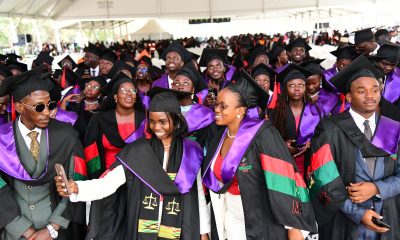
 General1 week ago
General1 week agoAdmission Lists for – Bachelor of Laws 2025-26
-
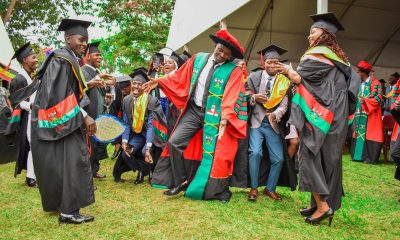
 General1 week ago
General1 week agoDiploma/Degree Holders Scheme – Self Sponsorship Admission Lists 2025/26
